ECONOMY
Partners on a Journey Enterprise Academy graduates use connections, knowledge to advance their businesses.
Pg. 8
COMMUNITY
Homegrown Goodness
Search begins for 2024-2025 class of Initiators Fellowship social entrepreneurs.
Pg. 10
GENEROSITY
Guidance for Giving
Hosted funds create long-lasting giving options that benefit donors, local causes.
Pg. 22
A HISTORY OF HELPING
Three businesses grow, prosper after receiving early—and pivotal—loans.
Pg. 14
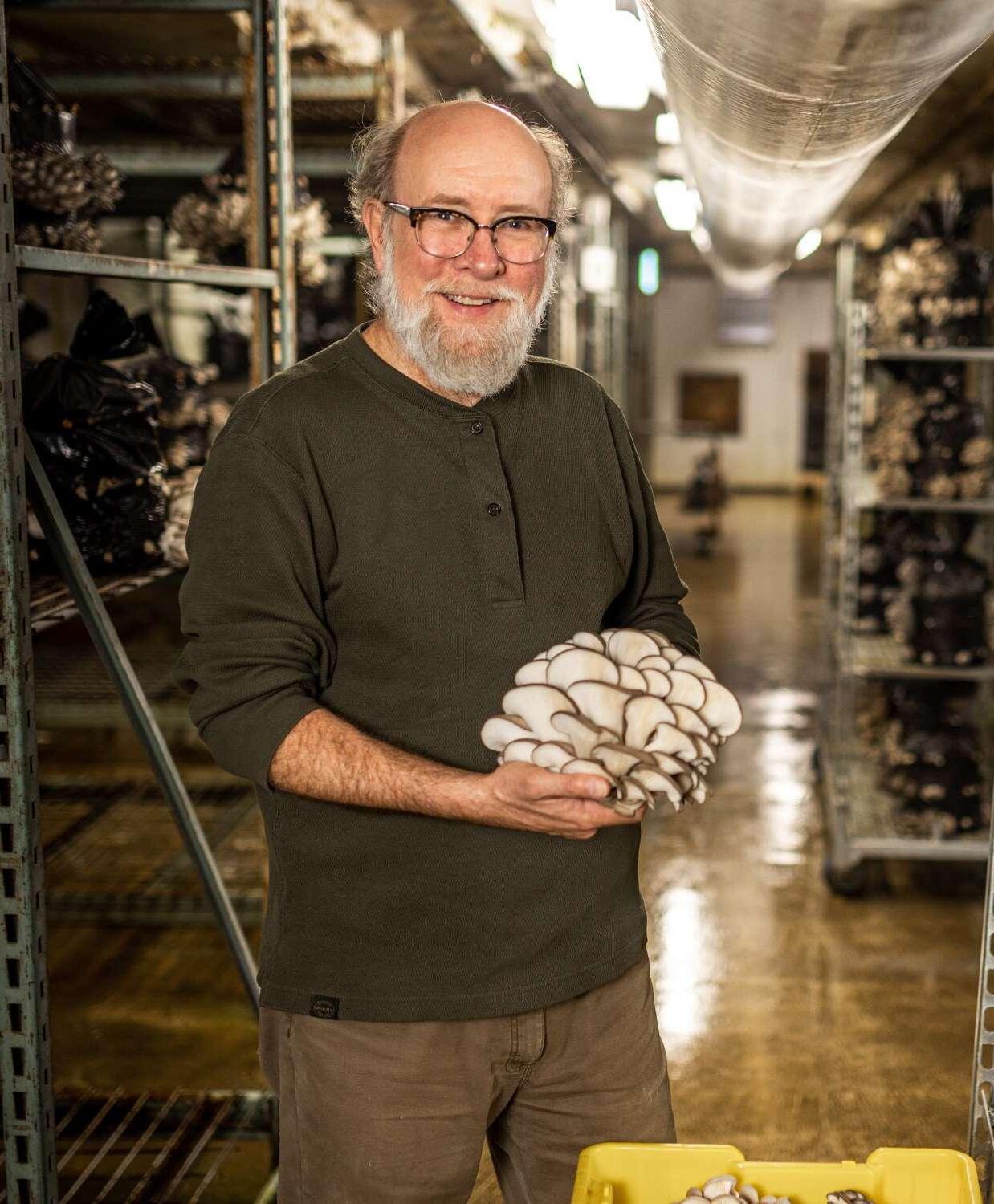
SPRING 2023
GROWING COMPANIES ENHANCING COMMUNITIES
Inspiring and celebrating Granite talent. Granite Partners is a private investment and holding company founded in 2002 in St. Cloud, Minnesota, with a mission to grow companies and create value for all stakeholders. As trusted partners, innovative leaders, and responsible stewards, we are committed to 100-year sustainability, and we aspire to world-class wellbeing for all people in and around the Granite community.

Granite.com

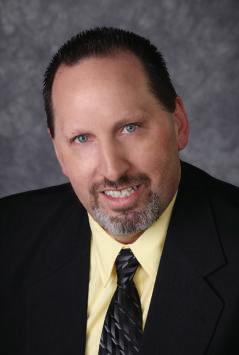
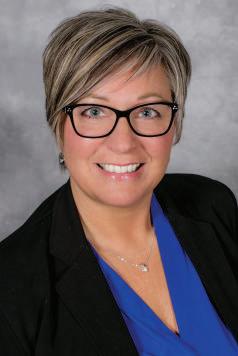
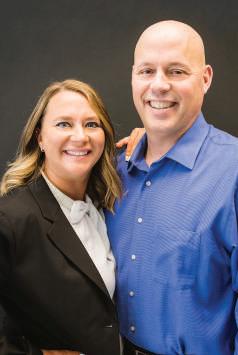
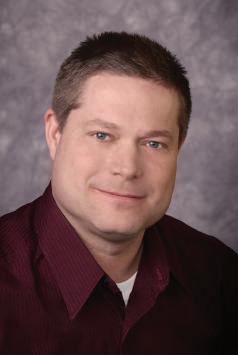

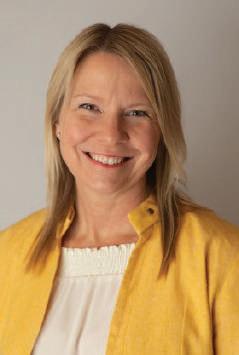
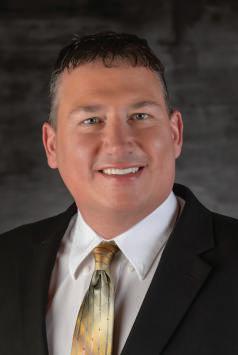




218-825-7787 17122 State Highway 371 N, Brainerd, MN 56401 WWW.WEICHERTTOWERPROPERTIES.COM Tim Bosch Broker / Co-Owner Sue Lehman REALTOR® 218-838-4159 Brett Streiff & Jennifer Wehan REALTORS® 218-820-9654 Todd Barnett Co-Owner Carolyn Hilke REALTOR® 218-851-8276 Carol Amundson REALTOR® 218-656-2234 Travis Banks Co-Owner Karine Loobas REALTOR® 651-303-7306 Teresa Baca REALTOR® 218-821-6834 INVITE US IN, WE WILL BRING RESULTS.
Contents
FEATURES
14 A History of Helping
A look at three businesses that received early—and pivotal— Initiative Foundation loans and how they’ve grown.
28 Front & Center: Child Care
Emerging community partnerships are taking shape to creatively influence Central Minnesota’s child care crisis.
34 Main Street Mainstays
Rural grocery stores support Central Minnesota’s food needs. They also foster community.
40 A Place to Call Home
Communities at a crossroads: How can we create affordable housing solutions to help hometowns grow and prosper?
DEPARTMENTS
6 Initiatives: Regional Highlights
Get the latest highlights from Central Minnesota’s 14 counties and two sovereign tribal nations.
8 Economy: Partners on a Journey Enterprise Academy graduates use connections, knowledge to advance Central Minnesota businesses.
10 Community: Homegrown Goodness
Search begins for 2024-2025 class of Initiators Fellowship social entrepreneurs.
22 Generosity: Guidance for Giving
Hosted funds create long-lasting giving options that benefit donors, local causes.
50 Home made: Better Greens
With the right mix of science, creativity and caring, Montrose-based Better Greens, LLC, is meeting a culinary demand in our diverse region.
52 Where’s IQ?
Initiative Foundation SPRING 2023

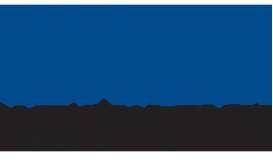
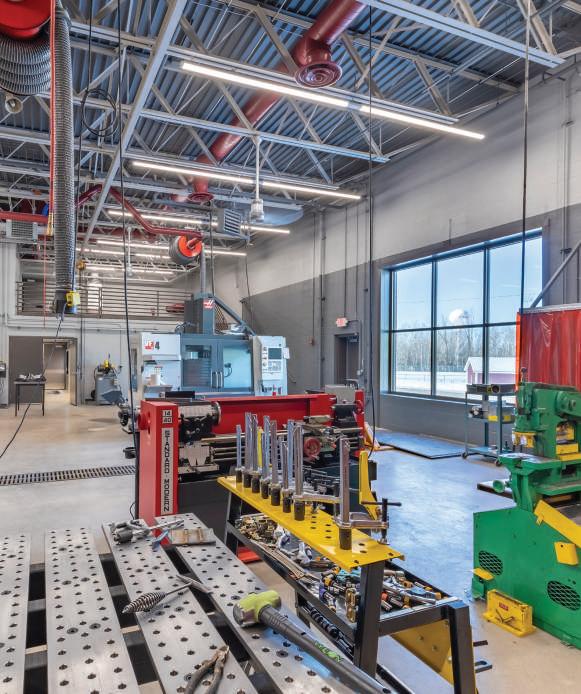
LET’S THINK OF A FEW REASONS Why IT CAN BE DONE Every single Falcon National Bank employee has this statement present at their desk and is empowered to live up to this value. What does this statement mean exactly? Falcon will work to think outside the box to find ways to help achieve your goals. Here is what we can do for you: •Competitive financing options • Flexibility in financing structure • Nimble and decisive loan approvals •A focus on building relationships • Experienced bankers and trusted advisors • And so much more! Come bank with us! St. Cloud | Maple Grove | Foley | Richmond | Ham Lake | Isanti 866.439.4363 FalconNational.com Helping Schools Prepare Our Next‑Gen Workforce Widseth.com Alexandria | Bemidji | Brainerd | Crookston | East Grand Forks Grand Forks | Mankato | Rochester | Wyoming Crosby–Ironton Career & Technical Education Wing | Crosby MN Planning; architecture; civil, structural, mechanical, and electrical engineering; construction administration SPRING 2023 3
Dear Friends,
My skating skills were never good enough to make me a hockey player. But I sure enjoy watching the sport—especially the bright lights, cool air, and distinctive sounds of attending in person.

So, I was especially excited last fall to attend a corporate sponsors breakfast for the Initiative Foundation’s longest-standing Partner Fund, the Three Rivers Community Foundation (TRCF), which serves the Elk River-Rodgers area. This annual event takes place at Elk River’s Furniture and Things Community Event Center, home to two National Hockey League-sized ice rinks.
In my remarks I told the generous businesses in attendance how the Initiative Foundation supports TRCF’s direct operations and grantmaking AND provides additional services that we believe make us a uniquely impactful place to create a Partner Fund. Namely, we provide lending capital as well as capacity-building programs for businesses and nonprofits. That work is fortified by other, complementary grantmaking such as the millions of dollars in COVID relief grants distributed during the peak of the pandemic. Last but not least, we LOVE to make connections between our partners.
That’s why I couldn’t have been happier to hear the story of another speaker that day, Julie Schultz, who leads Main Street Family Services in Elk River (mainstreetfamilyservices.org). She and her staff of 15 are deeply enmeshed in the work of reuniting and healing families facing hardship.
When demand spiked during the peak of the pandemic, as Julie saw Main Street’s available resources dwindle, she reached out the Initiative Foundation for ideas. In short order she was on a call with colleagues Don Hickman and Zach Tabatt. They talked through an array of solutions and ultimately connected Julie to TRCF and a $4,000 grant. Julie and her team have since accessed other Initiative Foundation grants and programming and have gained a host of new community connections.
In fact, this edition of IQ Magazine, and every edition, is about connections—from our feature stories about affordable housing (page 40) and local food access (page 34) to our cover story about longtime loan clients and the community-based jobs they create (page 14). You’ll also read about the generosity of others and how their donoradvised funds with the Initiative Foundation (page 22) are delivering grants that make a difference in myriad ways for children and families.
Thanks for reading!
Matt Varilek, PRESIDENT
VOLUME 37, SPRING 2023

Initiative Foundation
President | Matt Varilek
Marketing & Communications
Director | Bob McClintick
Marketing & Communications
Specialist | Allison Norgren
Editorial
Managing Editor | Betsy Johnson
Writer | Laura Billings Coleman
Writer | Lisa Meyers McClintick
Writer | Elizabeth Foy Larsen
Writer | Gene Rebeck
Writer | Maria Surma Manka
Writer | Sarah Kocher
Writer | Sara Mohs
Writer | Betsy Johnson
Art
Art Director | Dan MacLaughlin
Photographer | John Linn
Advertising
Advertising Director | Brian Lehman

Advertising Manager | Sonja Gidlow
Advertiser Services | Julie Engelmeyer
Subscriptions
Email info@ifound.org to subscribe or to make subscription inquiries.
405 First Street SE Little Falls, MN 56345 (320)632-9255 | ifound.org
IQ Magazine unlocks the power of Minnesota leaders to understand and take action on regional issues.
at Deluxe with Soy-Based Ink on Recycled Paper
Printed
DELUXE.COM
4 Initiative Foundation ifound.org
Cheering on the St. Cloud State University hockey team with my son, Rhys.
Boosting communities & building careers
At Sourcewell you will:
•Work in a collaborative, inclusive culture
•Make an impact
•Enjoy stability and flexibility
See what’s possible at: sourcewell-mn.gov/careers

Regional Investment Highlights
MORRISON COUNTY
| A Playground for All in Upsala
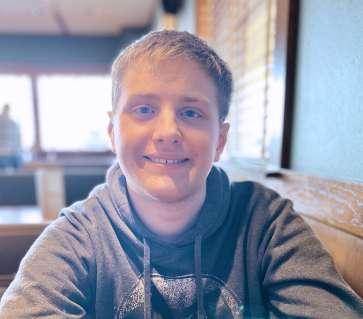

Swing over to the Upsala Elementary School playground, which is now accessible to children of all abilities. The 30-year-old playground had fallen into disrepair and lacked easy access for students in wheelchairs. Thanks to a hard-working committee and the support of generous donors, including the Morrison County Area Foundation, a Partner Fund of the Initiative Foundation, the playground is now a fun space for all!
TODD COUNTY | Spreading Hope to Spanish-speaking Victims
Hands of Hope Resource Center is a safety net for people affected by crime and abuse in Todd and Morrison counties. The organization had struggled to serve Spanish-speaking victims, but that changed when it received Otto Bremer Trust funding administered by the Initiative Foundation to hire Rocío Fernández Lugo as a bilingual advocate. The organization used additional grant funding from the Initiative Foundation to translate its website and printed materials into Spanish.
WADENA COUNTY | Education Fund Gives Students in Need a Hand Up
More than 30 Verndale Christian Academy students facing challenges received tuition-matching funds from the Ellen McGregor Endowment for Education Fund. McGregor started the Initiative Foundationhosted fund in June 2022 to help students who face physical, emotional, behavioral, academic and socio-economic challenges. “I just want them to be blessed,” said McGregor.
CASS COUNTY | Grants Help Pine River Businesses Renew, Reinvigorate
Pine River-area businesses stand to receive an economic boost of more than $425,000 through the Initiative Foundation-administered Minnesota Main Street Economic Revitalization Program. The grants cover nearly one-third of costs for projects that include parking lot improvements at Central Minnesota Dermatology; carpeting and other updates at Associates in Eyecare; and commercial building renovations on Barclay Avenue. Updates to convert a former ALCO building to a Tractor Supply Company have been completed.
CROW WING COUNTY | Online Opportunity Opens Youth Career Options
Why wait for college to settle on a career path? Bridges Career Depot is an online platform that helps middle and high school students start their search by serving up first-time job opportunities. Students aged 14 to 18 can use filters to zero in on their preferences—everything from customer experience associate to lifeguard to landscaping assistant. An Initiative Foundation grant to the Brainerd Lakes Area Chamber of Commerce helped to launch the program.
MILLE
LACS
COUNTY | Book Distribution Puts Kids at Center of Story
Reach Out and Read Minnesota believes children should see themselves reflected in the books they read. With grant support from the Initiative Foundation, the organization is distributing Ojibwe-language books to Leech Lake and Mille Lacs Band children and making Spanish- and Somali-language books available during Stearns County well-child clinic visits.
Initiatives IQ
NORTHERN WESTERN
MORRISON: Upsala Elementary School students are enjoying their new, accessible playground.
LEECH LAKE BAND OF OJIBWE
CASS
6 Initiative Foundation ifound.org
CROW WING: Bryce Kilian built his career skills by working at Cub Foods in Baxter for three years.
MILLE LACS BAND OF OJIBWE
CROW WING MILLE LACS WADENA TODD MORRISON BENTON SHERBURNE WRIGHT PINE KANABEC ISANTI CHISAGO STEARNS
BENTON COUNTY | Benton Puts Focus on Felon-Friendly Path to Work
Benton County employers are exploring an untapped talent pool—people recently released from incarceration. The Benton Economic Partnership (BEP) will work with the Central Minnesota Reentry Project over the next three years to explore transitional housing, transportation and workforce credentialing. The goal is to create a stable path for workers who are motivated to learn and to address the need for reliable employees, particularly in the construction field.
SHERBURNE COUNTY | High-speed Electric Vehicle Charging Comes to Becker
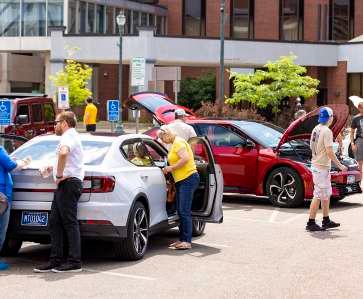
Electric vehicle (EV) owners cruising by Becker High School will be able to charge their vehicles starting this spring. Supported by a $40,000 Initiative Foundation grant, funded by the McKnight Foundation’s Climate and Energy Program, and a $70,000 Xcel Energy grant, the high-speed station will increase area charging options and encourage more people to consider EVs. An Aug. 5 expo in Elk River will feature EVs available for test drives.
STEARNS COUNTY | New Events Center Opens on St. Cloud’s South Side
Local entrepreneurs have come together to create an events center along Roosevelt Road in south St. Cloud. The first phase of the Capital Event Center opened in June 2022. Additional plans call for a restaurant, coffee shop and space for retail and professional services. The project was supported by an Initiative Foundation loan. Other recent Initiative Foundation loans in Stearns County support Jules’ Bistro in St. Cloud, Holdingford Hardware, and Savanna Prairie Assisted Living in Kimball.
WRIGHT COUNTY | Help Wanted: Small Business Successors
The last of the baby-boom generation will reach retirement age in a few short years. While that introduces the golden years for some, it likely means many small businesses will go up for sale or face closure. The University of Minnesota Extension partnered with the Initiative Foundation and Wright County Economic Development Partnership for a February rural business succession and transition workshop. The event was attended by community leaders who gleaned insights to keep local businesses thriving.
CHISAGO COUNTY | Chisago County Makes Inroads on Childcare Shortage
An Initiative Foundation grant and a First Children’s Finance partnership is helping Chisago County address its urgent need for 1,500 additional childcare slots for newborns to 5-year-olds. A countywide team has identified several local solutions—from establishing partnerships with local churches to using common space for multiple childcare providers—and plans to use American Rescue Plan Act money to fund its top initiatives.
ISANTI COUNTY | New Pathways, Donors Celebrate Homier Shelter Space

New Pathways in Cambridge provides housing for homeless families with children in a five-county area. Executive Director MaryAnn Westlund dreamed of upgrading the shelter’s daytime space. With the skills and confidence gained by attending the Initiative Foundation’s Fundraising School, Westlund and her team rallied donors to raise $46,000. The effort also generated more than 750 hours of volunteer time and led to a thorough remodel, making the space much more welcoming.
KANABEC COUNTY | Loan Helps Meat Market Remain a Mora Mainstay
K&R Retail Meats in Mora opened its doors more than 10 years ago with a range of fresh and smoked meats, jerky, beef sticks, seafood—and a deli that serves daily lunch specials. A recent lending partnership with the Initiative Foundation and First Citizens Bank helped a long-time employee buy into the business, ensuring that quality cuts and comfort-food offerings will continue to be a mainstay in Mora.
PINE COUNTY | Manufacturers Optimistic Despite Looming Challenges
The Initiative Foundation was proud to partner with Pine Technical and Community College in December to host Enterprise Minnesota and the reveal of its 2022 State of Manufacturing survey results. The survey tracks annual trends, outlooks and conditions and cites guarded optimism among manufacturing executives despite concerns about a potential recession and worker shortages. Central Minnesota manufacturers expressed additional concern about supply chain issues and economic and global uncertainty.
“The Initiative Foundation (has) provided critical support to businesses and organizations in rural Minnesota, ultimately making our communities more resilient and sustainable during unprecedented challenges. Their support has been invaluable to my retail business.”
– Judith Kissner Scout & Morgan Books, Cambridge
EASTERN
SOUTHERN
SHERBURNE: A July 2022 St. Cloud EV expo featured vehicles available for a test drive.
SPRING 2023 7
ISANTI: New Pathways in Cambridge remodeled its space to make it more welcoming.
Partners on a Journey
Enterprise Academy graduates use connections, knowledge gained through course to advance community-focused businesses in Central Minnesota
By Sarah Kocher | Photography by John Linn
Since launching Bridge Healing Center in June 2022, Ali Aden and his wife Lul Nur have tripled their staff to provide addiction and mental health services with a specific focus on diverse communities in the wider St. Cloud area.
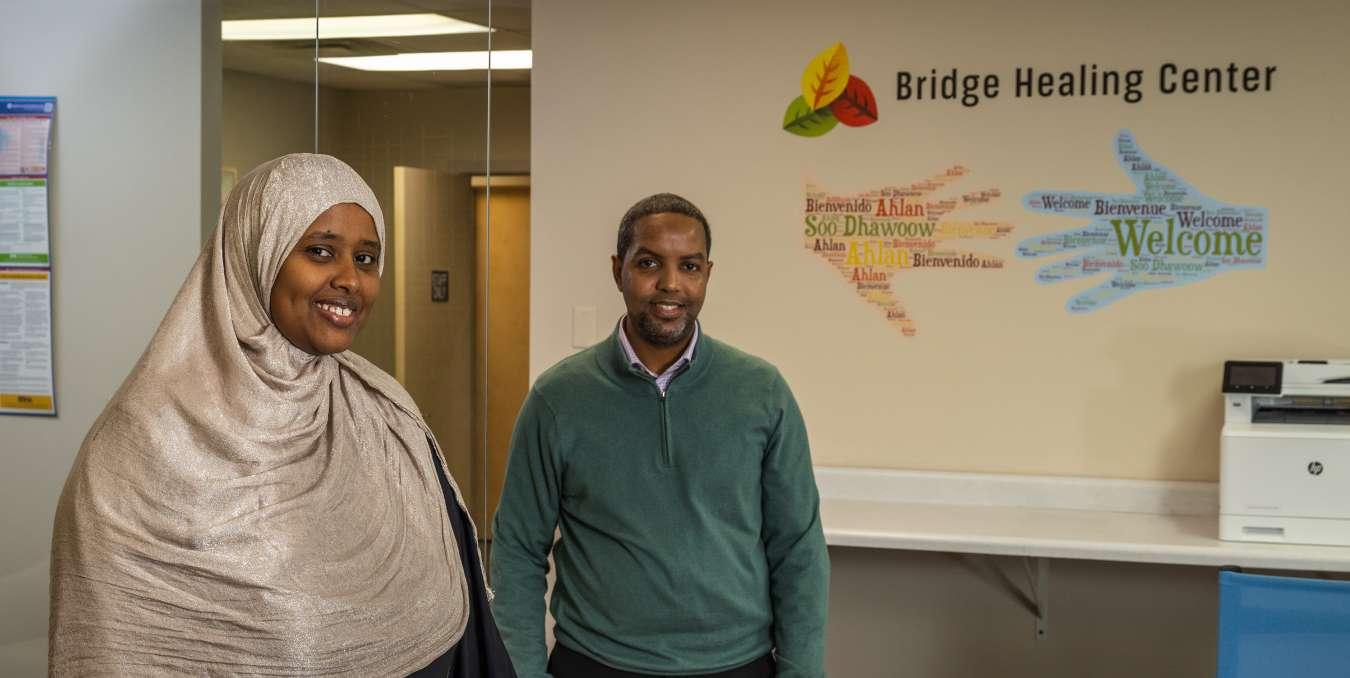
A graduate of the Initiative Foundation’s Enterprise Academy, which helped him to hone his networking and business skills, Aden hopes the addition of four licensed therapists will help to meet the needs of the mental health center’s growing client list. As he evolves the business, he and his wife have been intentional about creating a safe and familiar space. Using his Enterprise Academy connections, Aden partnered with classmate Anisa Hagi-Mohamed, whose culturally rooted original artwork and graphic designs adorn the walls of the Bridge Healing Center office space on Wilson Avenue in northeast St. Cloud.
While they may go through the program together, each Enterprise Academy student is on their own journey and timeline to launch a business. The common thread? All are on the ground floor of building
more equitable economies and communities in Central Minnesota.
At the heart of the Enterprise Academy is a 12-week business course that provides training and individualized advising to help underserved entrepreneurs start and grow small businesses. The expert-taught classes lead students through basic business principles and help them start—and ultimately finish—a business plan. Graduates also can apply for microloans through the Initiative Foundation.
“This program is a launchpad for early-stage entrepreneurs who have historically faced barriers to owning their own businesses,” said Ismail Mohamed, Enterprise Academy program manager. “We meet each entrepreneur where they’re at and walk alongside them with training and resources to support them moving forward.”
Since starting in 2018, the Enterprise Academy has graduated 150 students, primarily in the St. Cloud and Mille Lacs Tribal Economy areas. The program has provided more than 3,000 hours of classroom training and 1,700-plus hours of one-on-one coaching. Equally impressive: More than 50 percent of students have followed through to start a business compared to the national average (20 to 25 percent) for startup entrepreneurs who have received some form of training.
economy
TEAM SPIRIT: Enterprise Academy graduates Anisa Hagi-Mohamed (left) and Ali Aden paired their skills to create a welcoming environment at Aden’s Bridge Healing Center in St. Cloud.
8 Initiative Foundation ifound.org
BUILDING WEALTH, CULTURE, COMMUNITY
For Aden, who provides addiction and mental health services in Somali and Arabic, a microloan from the Initiative Foundation helped the business hire a provider, acquire technology and fund outreach campaigns to build awareness and attract more clients. He’s now looking for ways Bridge Healing Center (bridgehealingcenter.com) can provide even more client support.
Along the way, he and his team navigate cultural stigmas around mental health, guide clients through an unfamiliar healthcare system, find client transportation, and build trust in interpreters to maintain confidentiality in a small and tight-knit community. It’s early days for his venture, but Aden sees the promise and the possibility.

AFFIRMATION OF A GOOD PLAN
Anisa Hagi-Mohamed sees possibility, too. An artist by nature, Hagi-Mohamed leveraged her background in education and a master’s degree in applied linguistics to create a publishing business featuring her original artwork. Her leading product, Kalsooni bilingual affirmation cards, features positive expressions (phrases like “Khatar Baa Tahay!” or, in English, “You are Outstanding!”) paired with Somali textiles and artifacts. Sales have climbed for the deck of 52 Kalsooni cards—online orders in particular at anisahagi.com—since launching the business in 2021.
“I was surprised about where (my business) went in 2022,” Hagi-Mohamed said. “I worked with a lot of different groups and people,” including a halal grocery store in Hopkins, a local children’s museum, a youth group and a Twin Cities children’s hospital. While she’s donated to schools or given Kalsooni decks out at events, HagiMohamed said she’s sold the vast majority and has gone through more than half of her original print run of 3,000. Sales are largely domestic, but also include some international buyers. Her mission is to reach customers whose values align with her own and to provide resources that speak to matters of cultural importance and healing.
“... Coming to this country and kind of carrying a lot of trauma with us … those positive words were missing,” Hagi-Mohamed said. “I have three kids of my own now, and I’m always trying to be intentional about the language that I use.”
In addition to connecting with other business owners like Aden, Enterprise Academy affirmed for Hagi-Mohamed that she is on a meaningful path. “Overall, the biggest takeaway that I’ve gotten from the program is confidence—like I can really do this,” she said.
MOTHER-DAUGHTER ENDEAVOR
Mille Lacs-area graduates Danielle Kadlec and her mother, Rebecca Churchill, share a can-do attitude as they develop EndazhiOdaminong, a childcare business they hope to open in Grand Casino
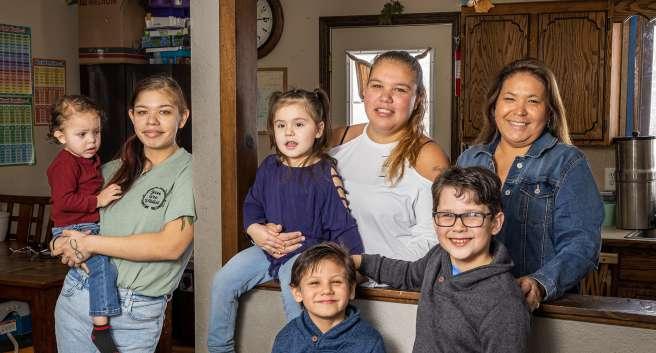
Mille Lacs. Originally intended as a drop-in site, the mother-daughter duo is reworking their business plan to focus on school-aged children.
Kadlec said the pivot addresses an age gap not served by other centers in the area. “... A number one (challenge) in (casino) employment was childcare in the area,” Kadlec said. “They can’t find any.” Kadlec can relate. She’s faced the same challenge for the past two to three years.

A mentor for teens in the Mille Lacs Band of Ojibwe’s Ge-Niigaanizijig after-school program, Kadlec and her mother, an educator, are charging forward with renewed focus to secure the necessary permissions, renovate and move in within the next year. Their goal is simple: to make a dent in the acute tribal economy childcare shortage. “We know there’s a big need for childcare within our community,” Churchill said.
A FRIEND AT YOUR SIDE
Enterprise Academy cohorts average about 10 students and include entrepreneurs at different stages, said Brian Voerding, Initiative Foundation vice president for inclusive entrepreneurship. Some enter the program with fully functioning businesses, while others have the seed of an idea and can take a year or more to launch their business. “Everyone is on their own journey,” he said, “and Enterprise Academy is designed to support entrepreneurs through all of the early stages of development.”
It’s an investment with the potential for significant economic and community benefit. “If we imagine what this looks like for the longterm,” Voerding said, “it’s connecting a successful business over here and another successful business over there, and they’re all run by folks who represent the community they’re serving. That’s a critical piece of economy-and culture-building.”
To learn if Enterprise Academy is right for you or someone you know, visit ifound.org/economy/enterprise-academy. Contact Ismail Mohamed or Donniel Robinson for a one-on-one conversation about your small business goals.
MOTHER-DAUGHTER DUO: Danielle Kadlec (in white) and her mother Rebecca Churchill (right) share a can-do attitude as they develop Endazhi-Odaminong, a Mille Lacs Tribal Economy childcare business.
Ismail Mohamed Enterprise Academy Program Officer imohamed@ifound.org
SPRING 2023 9
Donniel Robinson Entrepreneurship Programs Officer drobinson@ifound.org
Homegrown Goodness
Search begins for 2024-2025 class of Initiators Fellowship social entrepreneurs
By Betsy Johnson | Photography by John Linn
Being an entrepreneur can be a lonely endeavor, especially if you’re in a rural area. Jon Friesner knows that feeling all too well. For Friesner and his business, Emily-based GroShed, being a member of the 2020-2021 Initiators Fellowship cohort made all the difference in the world.
“When it’s just you in your head,” Friesner said, “it’s easy to talk yourself out of the big idea—to imagine no one is going to want it.”
The Fellowship provided Friesner a network of people that cared about him and supported his big idea. It helped him refine his vision and mission, and, as he puts it, “Suddenly, a bunch of people knew we existed, and that was incredibly helpful to kick us off and gain some ground.”
We spoke with Friesner, Initiators Fellowship Program Manager Christine Metzo and Brian Voerding, Initiative Foundation vice president for inclusive entrepreneurship, to learn more about this two-year program for emerging social entrepreneurs.
What is GroShed?
Friesner: GroShed builds pre-manufactured and fully deliverable hydroponic farms. Customers who own a GroShed are growing their own food and controlling their own spaces where they can grow food.

We were a typical startup—a struggling business trying to figure out what it was we were even doing. Through the Initiators Fellowship, we refined our vision and mission of what GroShed is, what we produce, what we do. It’s been a huge evolution.
What is the Initiators Fellowship?
Metzo: The Initiators Fellowship is an intensive commitment to cultivate rural leaders and to support their social enterprise visions. With wrap-around training and individualized support plus a stipend ($30,000 annually), we help entrepreneurs develop their social enterprise while growing as individual and community leaders.
What did the Initiators Fellowship do for you?
Friesner: The Fellowship relieved some of the pressure we were feeling with the economic shifts and the pandemic. The financial support, the network and the mentorship all helped us navigate those challenging times. Plus, the Fellowship makes you feel like you are not on your own. Being an entrepreneur in a rural area … you always feel like you’re chipping away at this big idea, and you have to do it all by yourself. So, to have a group of friends, networks and mentors … we felt like we had a place to go.
CONTINUED ON PAGE 12
JON FRIESNER: “The Initiative Foundation and its partners seem to have a bottomless well of people they know. You can’t put a price tag on that.”
community 10 Initiative Foundation ifound.org


Your Home Improvement Thrift Store Volunteer with ReStore at Lakes Area Habitat for Humanity Help customers, share your handyman skills, organize donations and more Call Heidi at (218)454-7021 to learn more Would you rather tear apart then build a home? www.lakesareahabitat.org/restore (218)454-8517 Shop. Donate. Volunteer. Items We Accept: appliances home building materials doors & windows electrical supplies plumbing material furniture hardware HVAC material lighting tools cabinets Many of our ReStore items come from salvages and remodels Our tear down crew saves them from going to the landfill.
community, continued from page 10
Who is a good fit for the Initiators Fellowship?
Metzo: If you are committed to revitalizing your rural community or region with a business and a mission that lifts up social or environmental commitments, then this is an opportunity to accelerate your growth and the success of your venture.
How do I know if my idea fits the definition of a social enterprise?
Voerding: The business model needs to center on a social purpose, not simply in giving back. A coffee shop that donates a portion of its profits to good causes is a great way to run a business, but it’s not a fit for the Fellowship. A coffee shop with a mission to hire previously incarcerated people to create jobs, on the other hand, would be a fit.
Metzo: There needs to be a social goal embedded in the economic goal. That’s what makes it a social enterprise rather than simply a business enterprise. In the case of GroShed, Jon Friesner knew that a big challenge facing Minnesotans, especially rural Minnesotans, is year-round access to fresh, healthy food.
How did the Fellowship help you overcome a challenge with your venture?
Friesner: GroShed has had numerous challenges. We’re in that strange space of creating our own market, because no one else is doing what we’re doing. One of the biggest challenges was to secure funding to buy equipment and expand our company. The Initiative Foundation has been there to help fill those gaps. They’re willing to take that risk because they know what you’re trying to accomplish and want to see you succeed.
What’s in it for people who might want to apply?
Metzo: When someone is starting out in business, it’s challenging to find an expert, accomplished mentor. Because of our deep relationships with Fellows, we can help them identify the support and training they need. We can also assist in building networks around the region to support them and their business. Cohorts are large enough to be their own support network but small enough that individual attention is central to all that we do.
How do I know if I’m ready for the Fellowship?
Voerding: We invest in ideas that are centered on creating positive social impact in a way that is transformational for you, your community and your region. If you have a clear vision for your enterprise and you’re driven to succeed and have the capacity to dedicate a minimum of 20 hours a week, you are ready to apply!
What is the commitment if I am selected?
Metzo: Fellows commit to weekly work on their business, monthly training sessions and quarterly in-person retreats. One other commitment involves our premier event every August. We call it the Brain Trust, and it provides Fellows with a unique opportunity to converse with leaders from statewide companies and nonprofits.
How does the Initiators Fellowship set you up for success?
Friesner: My mentor pressed me to figure out what we do as a business and how to do it really well. That was invaluable because, like a lot of entrepreneurs, I’m a big thinker. It’s easy to get distracted and go in a thousand different directions. The mentorship forced me to ask questions that our team still asks on a weekly basis. “Does this fit our long-term mission and vision?” If it does, let’s move forward with it. If it doesn’t, let’s not get distracted. Plus, their support meant I had a safety net. That allowed me to run my business with a clearer mind, because it alleviated some of the worry and stress.
What can you gain from your continued alliance with Fellowship alumni, your mentor, and the wider network?
Friesner: So much of owning a business is about who you know. The Initiative Foundation and its partners seem to have a bottomless well of people they know. I’m always amazed if I send out an email asking for help or support. Before long, I usually receive an outpouring of responses and resources. You can’t put a price tag on that.
Check Your Eligibility and Apply

Interested? Know someone who would be a good fit?
Visit fellows.greaterminnesota.net to learn more or to complete an eligibility quiz. The online application for the Initiators Fellowship is open May 1 through noon on June 15.
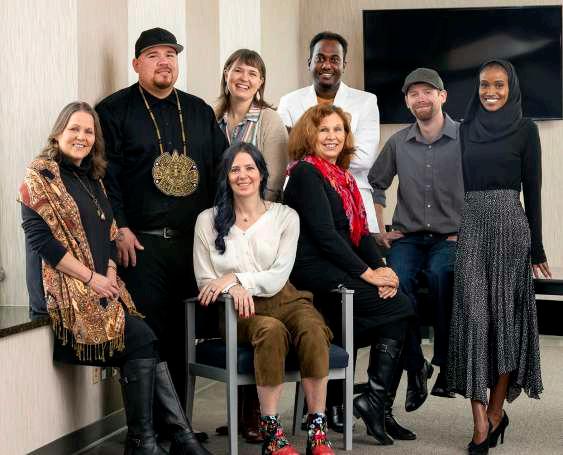 FRIENDS & FELLOWS: The 2022-2023 cohort includes (back row, left to right) Kris Shelstad, Madison; Daniel Barrientez, Bemidji; Nora Hertel, St. Michael; Khalif Ahmed Bashir, Willmar; (front row) Brenna Rollie, Fosston; Noreen Thomas, Moorhead; Alex Ostenson, Evansville; and Fardowsa Iman, St. Cloud. (Photo by Paul Middlestaedt)
FRIENDS & FELLOWS: The 2022-2023 cohort includes (back row, left to right) Kris Shelstad, Madison; Daniel Barrientez, Bemidji; Nora Hertel, St. Michael; Khalif Ahmed Bashir, Willmar; (front row) Brenna Rollie, Fosston; Noreen Thomas, Moorhead; Alex Ostenson, Evansville; and Fardowsa Iman, St. Cloud. (Photo by Paul Middlestaedt)
Initiative Foundation ifound.org 12
Manage
•
• Orders fulfilled and managed by Range


One Source for Customized Apparel for Your Business. Latest in Apparel Printing Technology • Screen printing • Embroidery • Appliqué • Laser etching • Direct-to-film • Heat seal • Print-and-cut • Custom applications Small to Large Orders In-House Design Services
Personalized Online Company Apparel Stores
store
company branding with an online
where your employees, associates, or branch offices can order company-branded items no matter the location.
programs
• Great for company and employee award
Ongoing or pop-up stores
everything print Locally owned for over 50 years • rangeprinting.com OFFSET • DIGITAL • LARGE FORMAT • APPAREL DECORATION • PROMOTIONAL CREATIVE • ONLINE PRINT STORES • MAILING & FULFILLMENT Call 888.632.8844 to talk to one of our apparel specialists.
A History of
HELPING
By Lisa Meyers McClintick | Photography by John Linn
A handful of sunflower seeds can be brushed off as bird seed or a snack to be cracked and nibbled in the bleachers at a baseball game. Like any kernel of an idea, it takes an innovator to see what others might miss. It could be a solution to a problem or a need that has gone unmet. To coax these ideas into flourishing ventures requires research, planning, financial investment, and a resilient mindset to overcome the inevitable challenges that arise.
When Smude’s Sunflower Oil launched in 2010, it was one of hundreds of regional businesses that had turned to the Initiative Foundation for loans since 1987. In its first year of lending, the Foundation provided $150,500 in loans to support entrepreneurs as they worked to build a business and diversify the local economy.
Efforts to support entrepreneurs have come a long way since then. “We partnered on nearly $4 million in lending during 2022 alone,” said Brian Voerding, vice president for inclusive entrepreneurship. Through more than 40 loans, ranging from a $3,000 microloan to a $500,000 multi-bank partnership, the Initiative Foundation lent its support to a host of new ventures and growing businesses across its 14-county service area that includes two Native nations.
Initiative Foundation gap loans are the bridge when traditional banks and credit unions are unable to cover all that a business owner might need to accomplish their growth objectives—especially when a sizable investment is needed to take the next step. That final piece of funding can be vital to entrepreneurs who’ve already taken a big financial risk. Meanwhile, startup loans can provide the capital an entrepreneur needs to launch their dream. With the Foundation taking the risk many banks are unwilling to, the loans focus on the entrepreneur’s ability to be successful and generate revenue in their first years.
“It’s a big leap to start a business, and a big leap to keep running it,” Voerding said. “There’s nothing easy about being an entrepreneur, but we like to think our partnership helps to ease the burden.”
Here’s a look at three businesses that received early—and pivotal—loans from the Initiative Foundation and how they’ve grown since then.
14 Initiative Foundation ifound.org
Longtime lending initiatives help entrepreneurs launch, expand and provide stability in the communities they help anchor.



“ There’s nothing easy about being an entrepreneur, but we like to think our partnership helps to ease the burden.”
— Brian Voerding, Initiative Foundation vice president for inclusive entrepreneurship
: : : SMUDE’S SUNFLOWER OIL
After two years of drought devastated their crops near Pierz, Tom and Jenni Smude made the decision in 2009 to try sunflowers. The plants required less water to grow, and the Smudes figured the seeds could be pressed for oil while the remaining sunflower meal could be used as a protein-rich source of food for the cattle on the family’s farm.
Within a year they discovered new potential in an emerging and health-conscious market: retail sunflower oil.
With support from the Agricultural Utilization Research Institute (AURI) and a $60,000 start-up loan from the Initiative Foundation, they created Smude’s Sunflower Oil. They began with a single cold-press machine operating on the family farm. The coldpress technique keeps oil healthier—and tastier—by not requiring heat or chemicals for the extraction process.
After three years of selling cold-pressed oil at farmers markets statewide, the Smudes outgrew their bottling capacity on the farm. They purchased a commercial building in the Pierz industrial park and installed a larger kitchen to accommodate growth.

Customers who used Smude’s buttery oil for popcorn repeatedly asked for microwave popcorn. After extensive and expensive trial and error, they found the right bag in 2017 to hold their simple and preservative-free ingredients: sunflower oil, popcorn and salt.
Their all-natural microwave popcorn was nominated for best new product by the Minnesota Manufacturing Association and earned its place at grocery stores such as Cub, Hy-Vee, Coborn’s, and Kowalski’s.
MARKET OPPORTUNITIES
In nearby Brainerd, and with a Little Falls expansion partially financed by the Initiative Foundation, Barrett Petfood Innovations was growing rapidly. Fueled by demand for healthier pet food, the company struck up a deal with Smude’s to add sunflower oil to its ingredients.
To meet the demand, Smude’s required nearly $3 million to buy manufacturing space in the Pierz industrial park and to purchase additional presses and sunflower seeds. Supported by a multi-lender deal that included the Initiative Foundation, the expansion allowed Smude’s to produce 55,000 pounds of oil—a full tanker truck—each week.
“They’re a big part of why we expanded,” President Tom Smude said. “Last year, we bought 9,000 acres of sunflowers to crush.”
As they enter their second decade of producing cold-pressed sunflower oil and microwave popcorn, the Smudes have also found ways to expand their other business ventures. Those businesses include Midwest Sales and Construction, which constructs and installs grain-storage units and dryers across Minnesota and northern Wisconsin; Rich Prairie Custom Woods, a custom woodworking operation that was part of their latest industrial park expansion; a gravel pit they bought to keep in the family; and Smude Farms, where they continue to plant crops and raise a herd of Black Angus beef cattle.
The businesses employ 20 people year-round, along with about 10 seasonal positions in this central Morrison County town of 1,410 residents. If you drive through town in late July or early August, you may catch their sunflowers in bloom—a sure sign of the economic engine that has sprung from a simple seed.
Looking ahead, their businesses remain a long-term commitment that may one day roll into a second generation. Following in her mom’s footsteps, daughter Katelyn, 20, graduated with a business degree from Moorhead State University and is now marketing manager for the businesses. When not in school or helping on the farm, son Mitchell, 17, works on the grain-bin crew.
Their flagship business, Smude’s Sunflower Oil, has grown to about $1 million in sales each year. “It’s a far cry from where we started,” said Tom, remembering when he and Jenni were the only employees. With their investments and a willingness to move into new markets, “[the business] just keeps on growing.”
16 Initiative Foundation ifound.org CONTINUED ON PAGE 18
“It’s a far cry from where we started. . . [the business] just keeps on growing.”
SUNFLOWER POWER: As they enter their second decade of producing cold-pressed sunflower oil and microwave popcorn, Tom and Jenni Smude have also found ways to expand their other business ventures.


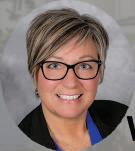

SPRING 2023 17 Member FDIC bremer.com Let's see what we can do together. We see you solving tough problems and taking care of the people who count on you. Plan your trip at ExploreBrainerdLakes.com #exploreBRAINERDLAKES Sue Lehman “Hometown Service with Results!” 218.838.4159 SueLehmanSells.com
NEMADJI
Inside a former two-story school in the town of Bruno (population 85), 26 miles northeast of Hinckley, visitors may hear the clatter of pans in the kitchen as meals are prepared for local seniors. They might also hear a giggly hubbub coming from the onsite child care center. Most of the building, though, serves as headquarters for Nemadji and bustles with quiet conversations and office meetings.
Through proprietary technology, Nemadji helps hospitals and health care providers across the country recover and increase their revenue, which, in some cases, helps them avoid layoffs.
Founder Gene Lourey had been a codebreaker for the National Security Administration. In the early 1980s, he and his wife, Becky, made the decision to return to rural Minnesota. The couple started Nemadji in 1985. Using data-mining technology developed by Gene, the company reviews patient accounts for missing or unknown insurance eligibility. The process helps hospitals receive payments for services while helping patients avoid bills being sent to collections.
Over the decades, Nemadji has persevered through major upheavals: the tech market crash, rapid industry and technology shifts, and the surprise of the pandemic.
Becky Lourey, who with her late husband Gene had 12 children (eight adopted), considers herself an activist and served for six terms in the Minnesota House of Representatives and Senate. While there, she advocated for affordable healthcare, early childhood education, and other family and community improvements.
She and her husband practiced servant leadership and made community involvement part of their company’s foundation. Among their many accolades over the years was receiving the Initiative Foundation’s 2004 Outstanding Enterprise award for their efforts to buy and convert the two-story former school building into Nemadji offices. The effort was supported by a $200,000 Initiative Foundation loan.
CENTERED ON EMPLOYEES, COMMUNITY
The Loureys offered quality wages and premium health coverage to employees, opened a child care center for employees and community members who needed it, and made sure the former school gym could still be used for community events, such as meetings or Veterans Day services.
That approach, however, was scrutinized when Gene died unexpectedly in 2008 and Becky faced their bankers. They questioned Nemadji’s employee benefits, why they were located in one of the poorest parts of the state, and commented that it didn’t look like they wanted the business to make money.
“The community needs businesses like this!” Becky Lourey insisted. Ever the activist, she switched to loans through the Initiative Foundation and local lenders who were interested in investing in healthy communities alongside profits.
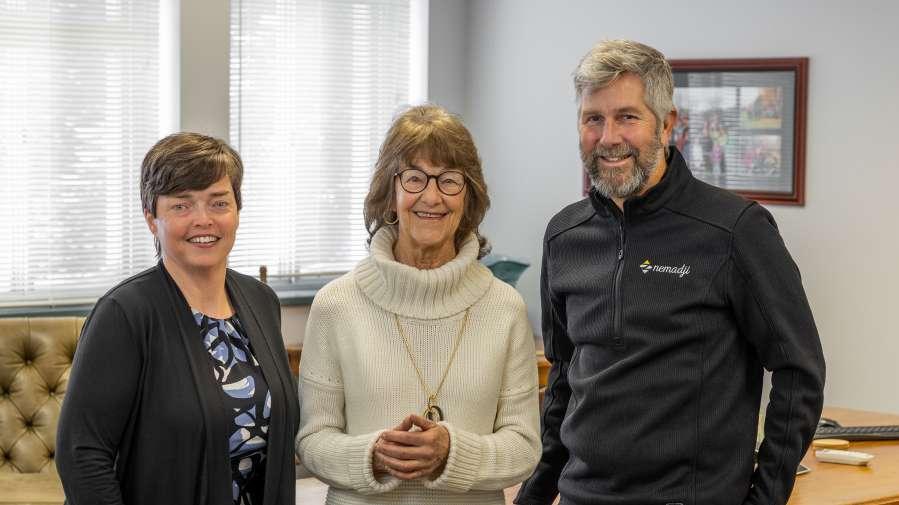
The Foundation followed with additional loans in June 2008 and October 2010. The cash infusion was used for working capital, equipment and expanding into new markets. Since then, Nemadji has grown steadily and now employs 77 people.
“The loans the Initiative Foundation gave us allowed us to survive in the region,” Becky said. “The Initiative Foundation took a chance on us, and they saved us.”
The family business officially passed down to its second generation in 2023. Son and new CEO Tony Lourey helped his dad build the company’s software, served three terms in the Minnesota Legislature, and is an expert in public health. Daughter Heidi serves as compliance officer and has been with the company for 33 years while son Nick works as an account specialist and has been with the company for 19 years. Becky continues to maintain an office as the company founder.
About 65 percent of Nemadji’s clients see an additional $1 million in net revenue annually. Through innovation and expressed client need, Nemadji recently began reviewing and overturning insurance denials as an additional way to benefit hospitals and patients.
“We expect to keep growing,” Becky Lourey said. “There are still so many hospitals and patients that need us.”
18 Initiative Foundation ifound.org CONTINUED ON PAGE 20
: : :
COMMUNITY-MINDED: (Left to right) Heidi, Becky and Tony Lourey are committed to keeping Nemadji based in Bruno, population 85.
A History of Helping CONTINUED FROM PAGE 16
“The loan the Initiative Foundation gave us allowed us to survive in the region.”
Brainerd EDA is Ready to Work for You.
Opportunities:
Brainerd Economic Development Authority


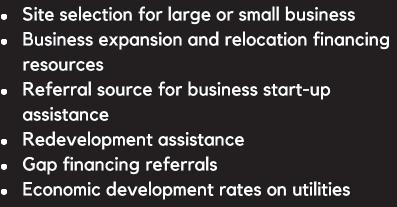
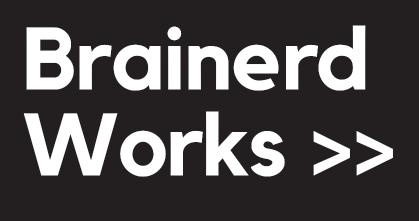


Jennifer Bergman, City Administrator 218 828 2307 | ci brainerd mn us

SPRING 2023 19
>> >>
>> >>
: : : FOREST MUSHROOMS
Every day, employees at Forest Mushrooms in Collegeville walk the cool, humid aisles to skillfully harvest oyster and shitake mushrooms. The delicate crop is swiftly packaged and delivered across the Upper Midwest to be served up on dinner plates in homes and restaurants.
Owner Kevin Doyle didn’t expect to one day be the largest specialty mushroom farm in the Midwest, but with his degree in natural science from Saint John’s University, his interest in sustainability and his entrepreneur’s eye for new markets, growing mushrooms has been a successful mission for the past 37 years.

The company officially launched in 1985 after Doyle read an article about growing mushrooms. During the process of helping a friend draft a mock business plan for a college class, they were able to connect with wholesalers and discover that the nearest specialty mushroom grower was in Colorado.
Doyle and his friend started experimenting with mushrooms and flew to Pennsylvania— where half the country’s mushroom crop was grown— to consult with mushroom experts at Pennsylvania State University.

“Within a few months we were growing mushrooms in Ham Lake and selling to a couple of restaurants in the Twin Cities,” Doyle said.
By January 1986, Doyle and a few partners secured a loan to buy a former Saint John’s Abbey hog farm. The farm offered an artesian well and the buildings featured low ceilings where they could hang substrate bags filled with straw for growing mushrooms. By July, they were growing 800 pounds of oyster mushrooms and shipping them to cities across the country.
Then a crop failure hit. The farm’s bountiful weekly harvest dropped to 80 pounds. Funds were dwindling, partners were spooked, and they wanted out.
“I ended up being the sole owner,” said Doyle. Puzzling through the crop failure, he learned it was due to the wrong kind of straw.
To be financially viable, Doyle knew he needed to quickly advance his low-tech operation. He turned to the Initiative Foundation for a $4,500 loan in 1987 to keep an employee and production going while he traveled to an international mushroom conference in Germany, which was Europe’s top producer at the time.
“That ‘bridge’ loan was a real lifesaver,” Doyle said. “We would have folded right there without it.”
He learned he needed even more money to purchase a Hollandmade machine that could chop straw and generate enough heat to pasteurize it, preventing contaminants, mold spores and weed seeds from harming the crop while also getting the straw to the right pH balance for the mushroom spawn to thrive.
Working with two local banks, he used the farm and his family’s home as collateral but still needed another $50,000 to purchase and install the machine, buy supplies and get the business back up and running. The Initiative Foundation closed the lending gap.
“It was relatively high risk and without any collateral,” Doyle said. “But we needed a lender to take the risk. The entire package would have fallen apart without the Initiative Foundation. The Foundation had faith in us, and it worked.”
20 Initiative Foundation ifound.org CONTINUED ON PAGE 46
A History of Helping CONTINUED FROM PAGE 18
KEVIN DOYLE: “The Foundation had faith in us, and it worked.”






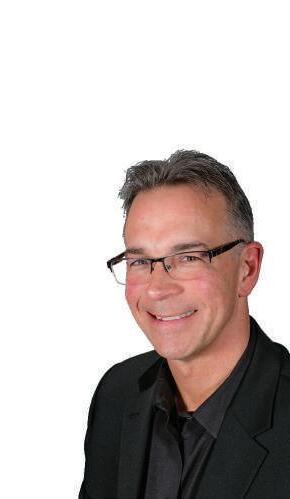
SPRING 2023 21 2 1 8 - 8 3 9 - 7 0 1 8 B r a i n e r d ' s f i r s t C o w o r k i n g S p a c e h a s e v e r y t h i n g y o u c o u l d a s k f o r i n a w o r k p l a c e : m o d e
n , s e c u
,
e l i a b l e w i r e d a n d w i
e l e
s i n t e
n
t , a n o p e n a n d c a l m w
k s
a c
o m m u n i
y w i t h o p
a
N
i o n s ! J o i n o
m u n i t y a n d u n l o c k y o u r p r o d u c t i v i t y t o d a y . w w w b r a i n e r d s p a c e s c o m l o r i @ b r a i n e r d s p a c e s c o m LEARN MORE ABOUT GRANTS AVAILABLE FOR NON-PROFITS (800) 962-0655 | WWW.STEARNSELECTRIC.ORG STEARNS ELECTRIC ASSOCIATION CARING FOR OUR COMMUNITY IS A CO-OP PRINCIPLE! MILLION DONATED $2.92 5,275 ORGANIZATIONS SUPPORTED $167,550 GIVING IN 2022 ©2023 CliftonLarsonAllen LLP. Investment advisory services are offered through CliftonLarsonAllen Wealth Advisors, LLC, an SEC-registered investment advisor. CPAs | CONSULTANTS | WEALTH ADVISORS 888-529-2648 Alexandria, Brainerd, St Cloud, and Monticello CLAconnect.com We’ll get you there. Where is your there? CLA brings balance to get you where you want to go. C onsulting , i n C . l ehman & a sso C iates Keeping Your Business Healthy • Marketing & Advertising • Small Business Strategic Planning & Development • Public Relations • Meeting Facilitation • Executive Coaching BRIAN LEHMAN (218) 838.4158 lehmanconsulting2@nisswa.net
r
r e f a c i l i t i e s
r
r
s
r
e
o r
p
e , a n d a c
t
p o r t u n i t y f o r g r o w t h W e h
v e p r i v a t e o f f i c e s , d e d i c a t e d d e s k s , c o n f e r e n c e r o o m s , a n d d a i l y d r o pi n s p a c e a v a i l a b l e
o w a c c e p t i n g r e s e r v a t
u r c o m
Guidance for Giving
Donor-advised funds create long-lasting, local giving option with meaningful benefits for donors and local grant recipients
By Sara Mohs | Photography by John Linn
When Jane and Patrick Mitchell sit down with their children and grandchildren to talk about the charitable gifts they’d like to make, they’re leading with their heads and their hearts to benefit local youth initiatives, shelters, the arts and more.
“I think one of the key things about the Mitchells’ donation has been the fact that they believe in us,” said Jerry Sparby, founder and executive director of the Yes Network, a St. Cloud-based youth empowerment program that also operates in Cold Spring, Richmond and Sartell.
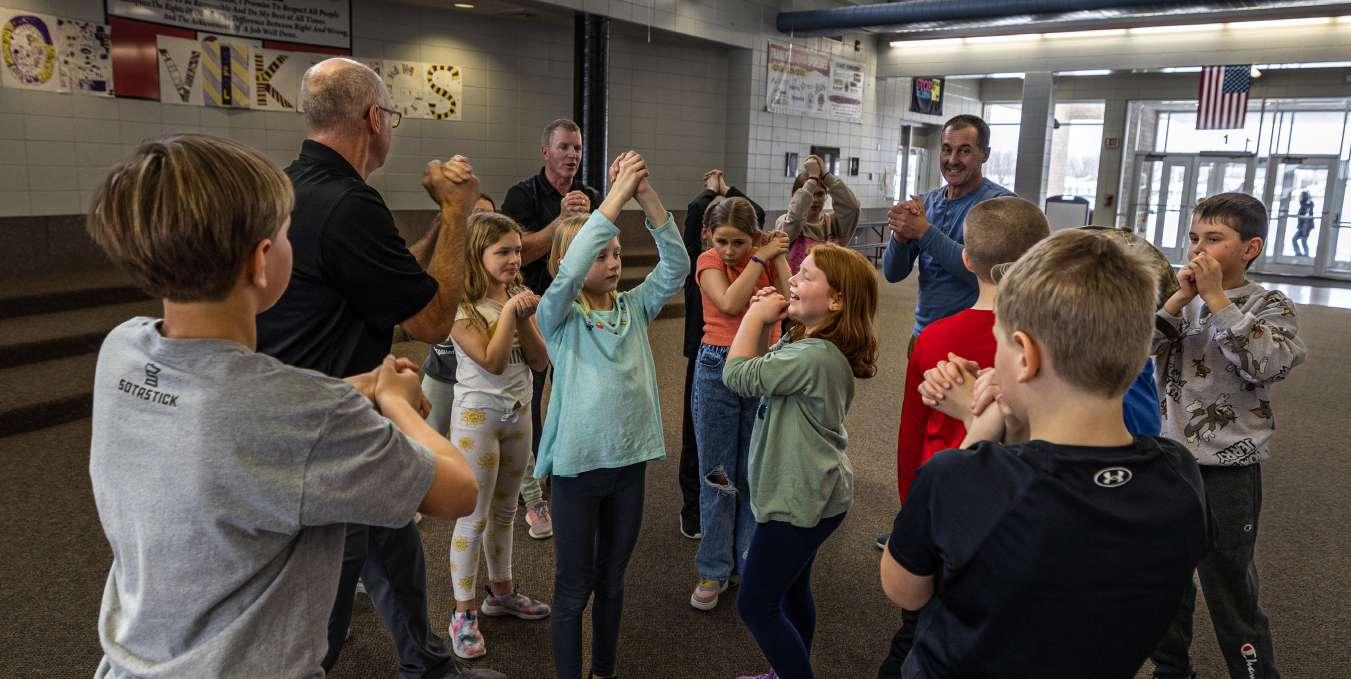
When the Yes Network developed HuddLUp International (huddlup.org) to address the fear, anxiety, isolation and other symptoms kids were experiencing as a result of the pandemic, the Mitchells were quick to help. “The Mitchells designated their Yes Network donation to our HuddLUp program,” Sparby said. “Their gift provides each classroom with a tub of equipment to play the games we teach each week” in up to 84 area classrooms.
The Mitchells guide their giving through an Initiative Foundationhosted donor-advised fund. “Once we identify the grants we want to
make, we recommend those to the Initiative Foundation,” Patrick Mitchell said. “The ultimate decision is theirs, but they have always agreed with everything we recommend.”
IQ Magazine recently visited with Jane and Patrick Mitchell, Bonnie and John Schlagel and Charlotte Stephens to better understand their motivations to create a donor-advised fund and use it to benefit the causes that matter most to them.
WHY DID YOU CHOOSE TO START A DONOR-ADVISED FUND?
Mitchell: Jane and I had identified some fast-growing, privately held stock that we wanted to donate. We wanted a self-directed fund so we could determine where we wanted the grants to go. If we had made the donations on our own from our checking account and not through the Initiative Foundation, it would be on post-tax dollars. So, we would have to pay tax and then make the donations. This way we’re able to make donations, and there’s no tax on earnings from that fund. In effect, 35 to 40 percent more money can be granted than if we had done it on our own. It’s a huge benefit to everyone involved. Schlagel: We knew of people whose financial situations changed,
CONTINUED ON PAGE 24
generosity
CARING FOR KIDS: A donation from the Jane and Patrick Mitchell Family Fund is helping the Yes Network deliver its HuddLUp International program to area children.
22 Initiative Foundation ifound.org
Be Kind. SmilesForJake.org SFJ ad 7.75x4.625 -IQ - Sept20.indd 1 9/18/2020 3:34:50 PM Office: 218.818.4400 PO Box 2602 www trinitybusinesspartners com Baxter, MN 56425 With Solutions To Fit Your Needs Leading You Forward • Payroll & Bookkeeping Services • Human Resources Support Services • Business Consulting • Employee Benefits • Medicare Benefits • Senior Benefits • Individual Benefits 218.818.4400 | info@trinitybp.com | trinitybp.com YOUR LAKES AREA PEO Baxter: 7760 Excelsior Rd. Ste. #103, Baxter, MN 56425 Pequot Lakes: 30537 Patriot Ave., Pequot Lakes, MN 56472 Aitkin: 204 2nd St. NW, Aitkin, MN 56431 SPRING 2023 23
such as going through bankruptcy, huge medical bills or stock market crashes. We wanted to ensure that if any of this happened to us, we would still be able to make charitable contributions. Besides helping to ensure you’ll be able to continuously give, it also tends to make you more informed and thoughtful about who you are giving to. You have a specific amount of dollars to donate every year, so you spend more time thinking about who to give to instead of just making spur-of-themoment decisions.
Stephens: I wanted to start a donor-advised fund to continue supporting local and regional organizations during my lifetime and to know that my gift will continue to support good causes after I’m gone.
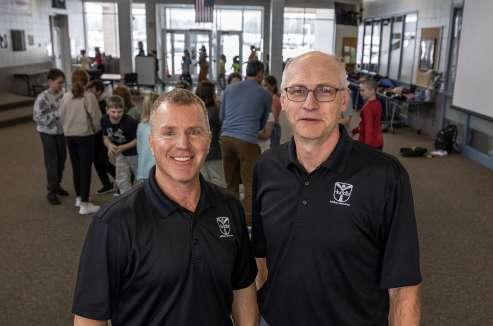
WHY IS IT IMPORTANT TO YOU TO SUPPORT LOCAL ISSUES AND CAUSES?
Mitchell: We’ve been lucky and have been able to send our kids to good schools and live in a good community, and we owe that community in return for what it’s done for us. We want to teach our children and grandchildren that it’s important to give back to the communities that supported us.
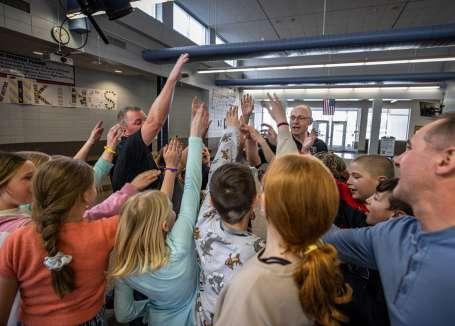
Schlagel: Everything takes on more importance when it’s happening in your own community. By the way, it’s important not to let the donor-advised fund blind you into thinking that’s all the money you’ll give every year. If you’re still making some earnings, you can be donating outside of your donor-advised fund.
Stephens: This is where I live, and I see needs that can benefit from support by community members. Providing support for local nonprofit organizations makes this a better community for everyone.
HOW DO YOU DECIDE ON THE ISSUES AND CAUSES YOU SUPPORT?
Mitchell: We work closely with our children and grandchildren to determine where we want the funds to go. We sit down every year and talk about the types of things we want to fund. Our goal is to fund organizations that work with the youth in greater St. Cloud and in Sioux Falls where our families live.
STARTING A FUND IS EASY
Schlagel: We stay aware of local issues and causes. We also decided that most of our giving from our donor-advised fund would be used to help sustain the existing organizations we were already giving to. It’s not that we don’t give to new organizations and causes, but rather we do that outside of our donor-advised fund.
Stephens: I’ve specified categories of causes that I want to support. I’ve already been supporting some of the nonprofit organizations within these categories, but I will also consider other special needs as they arise.
WHY DID YOU CHOOSE THE INITIATIVE FOUNDATION AS THE HOST ORGANIZATION FOR YOUR
DONOR-ADVISED FUND?
Mitchell: I (Patrick) was working with a local attorney who was familiar with the Initiative Foundation, and he recommended that we use that organization. When we interviewed the Initiative Foundation to see if they offered the services we needed to execute our plans, they met all of our objectives. The fund enables us to support local communities and meet our tax objectives, and we’ve been very pleased with the Initiative Foundation. They’re responsive and helpful and we endorse them.
Schlagel: I (John) was on the Initiative Foundation board at the time. I knew they’d do a great job and provide help when needed. We think this is especially helpful if you are an organization that will be doing future fundraising for your donor-advised fund.
Stephens: For many years I was aware of the good work of the Initiative Foundation, so I became a Community Builders Circle Member. The geographic area served by the Foundation includes community organizations that I want to continue supporting. Carl Newbanks and his team were easy to work with, listened to my ideas and explained the options. They provided information and encouragement without pressuring me.
Donor-advised funds are among the easiest to create and maintain. To start a fund, you simply …
• name your fund and its advisers
• take your immediate tax deductions
cnewbanks@ifound.org
• contribute assets
• recommend grants to the organizations you choose.
community,
THE POWER OF PLAY: The HuddLUp classroom model puts mental wellness front and center by promoting play, self awareness and relationship-building.
continued from page 22
24 Initiative Foundation ifound.org
To inquire about starting an Initiative Foundation-hosted fund, contact Carl Newbanks, director of development, at
or call (320) 631-2042.
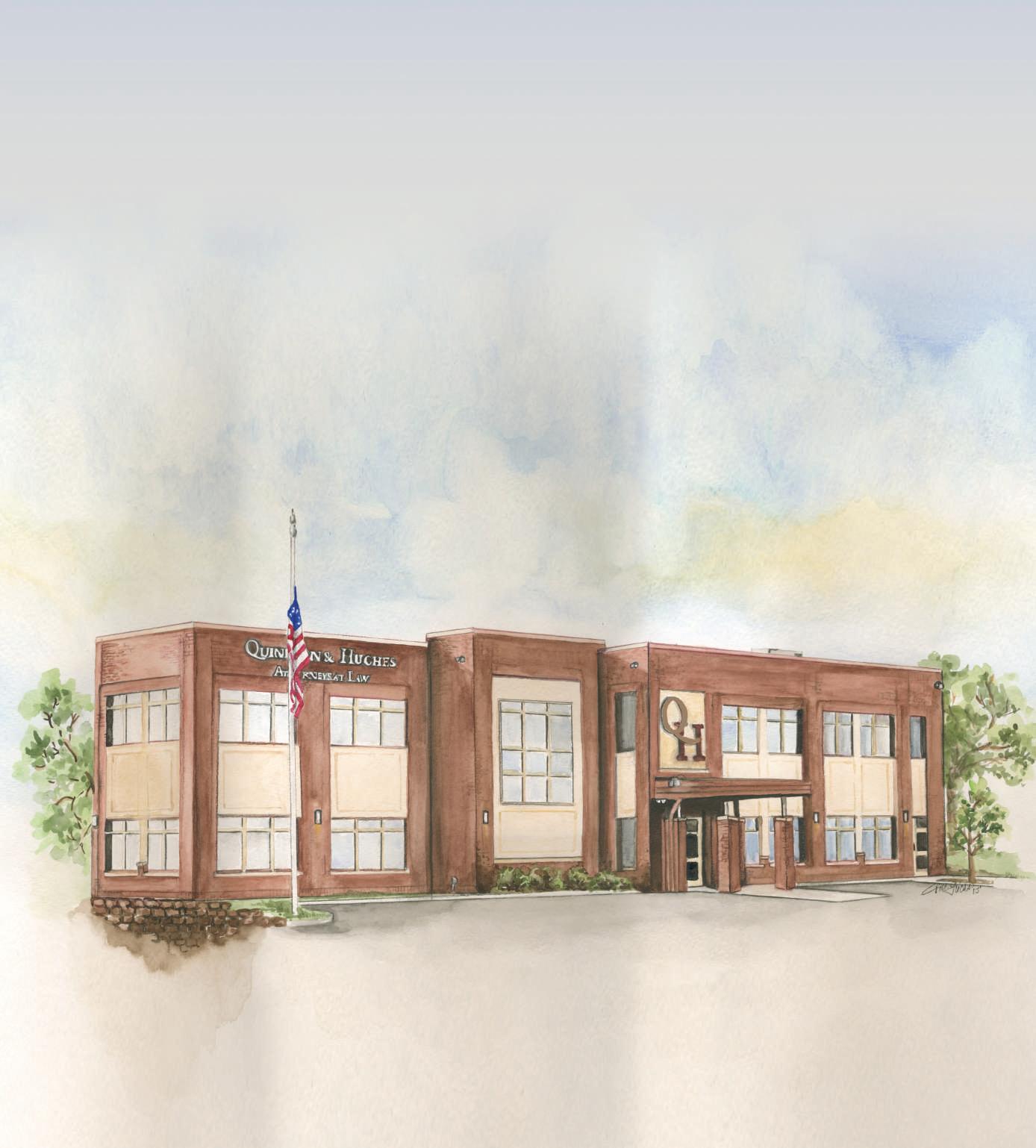




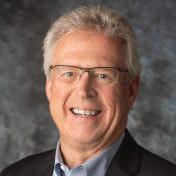
Make a Charitable Gift From Your Estate Plan. It’s never too early in life’s journey to think about the future. Everyone should have an estate plan, and a charitable gift can be an important part of that plan. Contact us and begin exploring customized giving options created just for you and your circumstances. With a little research and some planning, you will be able to gain tax advantages and leave a legacy that inspires others for years to come. (877) 632-9255 | 405 First Street SE, Little Falls, MN 56345 | ifound.org LEAVE YOUR LEGACY. Carl Newbanks: cnewbanks@ifound.org Mike Burton: mburton@ifound.org Support the causes that matter most to you in Central Minnesota.
A Special Thanks to Our Annual COMMUNITY BUILDERS CIRCLE Members.
Your Region. Your Initiative. Your Foundation.
The generosity of Community Builders Circle members unlocks the power of local leadership, nonprofits, small businesses and emerging entrepreneurs. Thank you for your annual contributions that help to make Central Minnesota an exceptional place to live, work and raise a family.

BUSINESSES
$10,000+
• East Central Energy
• Granite Partners Foundation of Minnesota, Inc.
• Sourcewell
• Stearns Bank, NA
$5,000+
• Anderson Brothers Construction Company
• Bremer Bank
• Compeer Financial
• Connexus Energy
• Falcon National Bank
• Schlagel, Inc.
• St. Cloud Hospital / CentraCare Health System
• Stearns Electric Association
• U.S. Bank
$2,000+
• American Heritage National Bank
• American National Bank of Minnesota
• Arvig Communication Systems
• Bush Foundation
• Central McGowan
• CliftonLarsonAllen, LLP, Northern Minnesota
• Clow Stamping Company
• Consolidated Telecommunications Company
• Crow Wing Power
• DeZURIK, Inc.
• Farmers & Merchants State Bank Charitable fund of the Central Minnesota Community Foundation
• First National Bank of Milaca
• IPEX, Inc.
• Long Prairie Packing Company
• McDowall Company
• Microbiologics, Inc.
• Rotochopper
• Sherburne State Banks & Sentry Banks
$1,000+
• Buffalo Hospital on behalf of Allina Health System
• BankVista
• Benefit Innovations
• Brenny Transportation
• Cambridge Medical Center on behalf of Allina Health System
• Citizens State Bank of Waverly
• First Bank & Trust
• First National Bank North
• First State Bank of Wyoming
• First Western Bank & Trust
• Frandsen Bank & Trust
• Harvest Bank
• Kensington Bank, St. Cloud
• LINDAR / Avantech
• Little Falls Area Chamber of Commerce
• Marco Technologies, LLC
• MINPACK, Inc.
• Monroy Law Office, PLLC
• NOR-SON Custom Builders
• NOR-SON Construction
• Park Industries, Inc.
• Pequot Tool & MFG., Inc.
• Pine Country Bank
• RiverWood Banks
• Schlenner Wenner & Co.
• The Bank of Elk River
• Todd-Wadena Electric Cooperative
• Wadena State Bank
• Western Bank of Cass Lake
• West Central Telephone Association
• WiDSETH
• Wyoming Machine, Inc.
INDIVIDUALS
$2,000+
• Anderson Family Legacy Foundation Agency
• John E. Babcock
• Rick and Helga Bauerly Foundation
• Lynn & Darren Bushinger
• Don Hickman & Sandra Kaplan
• John & Bonnie Schlagel
• Dorothy J. Simpson
• Dianne Tuff & Murdoch Johnson
• Maggie & Matt Varilek
• Bernie Waldorf
$1,000+
• Dick and Mimi Bitzan Family Fund of Central Minnesota Community Foundation
• Michael & Kathleen Burton
• Linda Eich DesJardins & Joseph DesJardins
• David & Kim Ellingson
• Don & Deanna Engen
• Kathy & Neal Gaalswyk
• Teri & Tom Hoggarth
• Jo & Larry Korf
• Joe Nayquonabe & Christina-Clitso Nayquonabe
• Robert & Susan Olson
• Robert Shadduck Family Fund of the Minneapolis Foundation
• Kimberly & Denise Slipy
• Rita & Everett Sobania
• Charlotte Stephens
• Ludmila Voelker
• Brian Voerding & Mollee Sheehan Voerding
• Dr. Robbyn Wacker & Jani Malkiewicz
• Kristi Westbrock & Mike Bjerkness
• Bobby & Carrie Willis
As a 501(c)(3) nonprofit organization, your Initiative Foundation contribution is tax-deductible to the extent allowed by law. The Foundation owns and manages financial contributions for the benefit of Central Minnesota communities.
Join the Community Builders Circle today. To make a pledge and join the Community Builders Circle, Contact Carl Newbanks (cnewbanks@ifound.org; 320-631-2042) or Mike Burton (mburton@ifound.org; 320-631-2059), or visit ifound.org/give to give online. (877) 632-9255 | ifound.org 405 First Street SE, Little Falls, MN 56345
SPRING 2023 27
Front and Center Child Care
Creativity and new community partnership are taking shape to solve Central Minnesota’s child care crisis

 By Laura Billings Coleman |
Photography by John Linn
By Laura Billings Coleman |
Photography by John Linn
28 Initiative Foundation ifound.org
Like any new business owner, Morgan Dabill had a lot on her mind in the lead-up to launching a new child care center in Pine River. After finding the perfect plot of land on the route between Pequot Lakes and Backus, Dabill spent months meeting with bank officers, fine-tuning her business plan, applying for grants, supervising the construction, and hiring and training staff certified to handle everything from infant care to afterschool programs.
The one thing she didn’t have to worry about was attracting customers.
“As soon as word got out that we were even thinking about starting this up, I had people messaging me about finding a spot for their kids,” says Dabill. “Since the pandemic, I know of so many parents who’ve had to cut their hours or quit working completely because there’s no place for their kids to go. I’ve had families calling from 45 minutes away. You can feel how desperate they are.” Since opening its doors in October 2022, the Wild Roots Early Learning Center is already in the black with more than 40 children in full-time care, a staff of nine caregivers, and more than a year-long waiting list for infant care. When fully enrolled, Dabill’s nature-focused operation will be able to accommodate nearly 70 kids from 6 weeks to 12 years old, dramatically improving child care options in an area hard hit by the recent closure of several family-based providers. But across much of Greater Minnesota, finding available child care slots remains an uphill battle for working families—and a growing headache for employers.
“What was already a deeply entrenched problem prior to the pandemic has, in fact, gotten worse—particularly in Central Minnesota, where there’s a forecasted shortfall of up to 17,000 child care slots to meet demand,” said Don Hickman, Initiative Foundation’s vice president for community and workforce development. Familybased providers have long been the backbone of the rural child care system. For the past 20 years, though, providers have been leaving the field at a far faster rate than they’ve been replaced. It’s
happened for a host of reasons: from a predictable wave of Baby Boom retirements to the unexpected challenges of operating through the pandemic. While profit margins have always been low—providers need to make their rates affordable for working parents—Minnesota’s strong post-pandemic jobs recovery has added additional pressure as child care workers leave the field for richer opportunities.
“Many providers now have to wonder why they’re working 14-hour days and wearing down their homes while running a home child care when they could be making several dollars an hour more, with benefits, working at a gas station or a grocery store,” Hickman said. While expanding capacity in child care centers has helped to offset the closure of home-based options in higher-density areas, that’s not an option in most of Minnesota’s rural communities. “You typically need a mass of 80 children to make a child care center cash flow,” he said. “Smaller communities don’t have those numbers, so families are a hundred percent dependent on home-based providers.”
Quality, affordable child care can no longer be viewed as a short-term problem families need to solve. “This is an economic development challenge,” Hickman said. “The free market isn’t going to fix it on its own.”

Communities Commit
Fortunately, a growing number of communities across the Initiative Foundation region are making inroads as they explore more sustainable solutions to the persistent shortage. “Several years ago, if you mentioned child care to a room full of employers, you’d hear crickets,” said Marnie Werner, vice president for research and operations at the Center for Rural Policy and Development. Werner is the author of a new report, Rural Child Care Solutions: From the Ground Up. “The child care issue is now converging with the retirement of Baby Boomers, and if there’s not enough child care in a community, you’ve got an increasingly smaller pool of workers to fight over.”
That trend is what motivated Mille Lacs Corporate Ventures to take the lead on creating a new child care center to serve young families in 30 new workforce housing units at Red Willow Estates
SPRING 2023 29
Hackensack and other communities hit by home daycare closures have asked Morgan Dabill if the model for her smaller-than-average child care center could be more sustainable in outstate Minnesota. “It’s critical that I keep my focus on getting my business off the ground, but if it’s a model that works, we’ll keep using it.”
in Onamia. “As we thought about how to tackle the child care problem in our region, we looked at the ways we could utilize our available buildings,” said Beth Gruber, director of planning and community engagement at Mille Lacs Corporate Ventures (MLCV). Working with Kidz Zone, a provider with centers in Garrison and Aitkin, MLCV recently earned a major grant from the Minnesota Department of Employment and Economic Development (DEED) to fast-track the development of a 63-slot child care center set to open in the fall of 2023. Partners at Mille Lacs Health System, eager to expand child care options for their growing workforce, will cater the food for the center, eliminating the need to install a commercial kitchen.
“The Mille Lacs Band is the largest employer in this region, so this partnership will really help our workforce. At the same time, it will serve everyone in our community,” Gruber said.
That all-hands approach also is on display in Brainerd, where the YMCA recently earned $600,0000 in federal funding to help convert a former funeral home into a child care center for up to 140 kids. Even before the pandemic, Crow Wing County had a child care deficit of about 1,300 spots. It’s a shortage that has galvanized multiple partners to help fill the gap with grants from DEED, the Brainerd Lakes Area Community Foundation, Minnesota Main Street Economic Revitalization funds, and American Rescue Plan Act funding from Crow Wing County. Seeing business, government and philanthropy working together to solve the child care gap in Brainerd is an encouraging sign, says Werner. “Over the last 20 years I’ve been studying this, it’s clear that real community cooperation, getting everyone on board, is what contributes to long-term success,” she says. “This is too big a problem to expect just one sector to solve everything.”
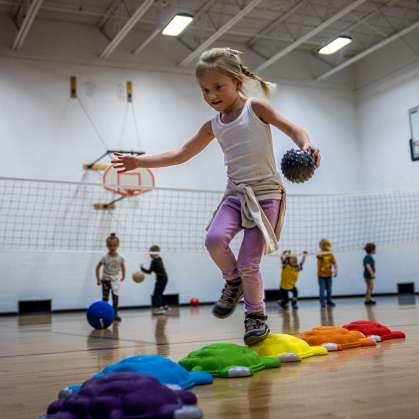

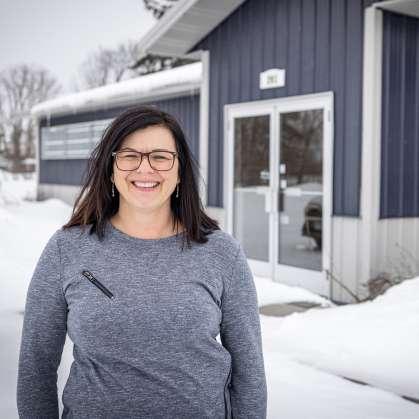
The Initiative Foundation provided grants to support the Pine River, Onamia and Brainerd projects. It also has supported
a host of other projects across the region as part of its long-standing commitment to improving and expanding early childhood options. The Foundation has also brokered a partnership with First Children’s Finance and Chisago, Pine, Mille Lacs and Isanti counties by offering each county a $10,000 challenge match to implement their best ideas for overcoming the child care gap.
Investing in the Profession
While increasing child care capacity across the region is critical, Hickman said, Central Minnesota will also need to activate a new generation of child care providers, especially those who can fill the growing gaps in family-based child care. “Lifting up home-based providers is critical to rural areas that don’t have big employers that can take the lead,” he said. “Home-based care is typically one-third cheaper than center-based care, and for these rural communities, having room for eight to 10 kids is right-sized.”
To encourage more people to enter the profession, or expand the capacity of their current child care businesses, the Initiative Foundation has contracted with St. Cloud Technical and Community College, Central Lakes College in Brainerd, and Pine Technical and Community College to make it possible for students to graduate debt-free while earning certifications and degrees in early child development and education. The Foundation also is exploring partnerships to expand the offering to the Leech Lake Tribal College, and to build credentialing pathways in both Spanish- and Somali-language programs.
“If students still need help after [they’ve been] awarded financial aid, the Initiative Foundation covers the rest,” said Annette Weaver, Pine Tech’s education coordinator. Weaver also leads the region’s professional development delivery initiative for Child Care Aware.
CONTINUED ON PAGE 32
30 Initiative Foundation ifound.org
COMMUNITY-BASED PROBLEM-SOLVING: An all-hands approach is being taken by communities throughout the region to address childcare shortages. Top left: Beth Gruber of Mille Lacs Corporate Ventures at the site of a future childcare location. Center and right: The Brainerd Family YMCA readies for expanded childcare services.







3251194.4 Our team is excited to serve you along your financial journey. Dedicated planning tailored for you Northern Skies Group 14391 Edgewood Dr., Ste. 200 Baxter, MN 56425 218-270-2703 Not all team members can provide all products, programs and services in all states. World’s Most Ethical Companies” and “Ethisphere” names and marks are registered trademarks of Ethisphere LLC. For details, visit Ethisphere.com. Securities and investment advisory services offered through Thrivent Investment Management Inc., a registered investment adviser, member FINRA and SIPC, and a subsidiary of Thrivent, the marketing name for Thrivent Financial for Lutherans. Registered representative of Thrivent Investment Management Inc. Advisory services available through investment adviser representatives only. Thrivent.com/disclosures. Thrivent was named as one of the “World’s Most Ethical Companies” by Ethisphere for 12 years in a row. (800) 248-4174 • (218) 963-7908 5445 City Hall Street, Nisswa nisswatax.com nts@nisswatax.com SPRING 2023 31
With virtual night-time classes, many early childhood education offerings have been retooled to fast-track workers sidelined by the pandemic into new jobs in child care, and to make continued certification simpler for working providers in rural areas. Since launching, the program has made it possible to graduate nearly 200 child care providers per semester, and to support continued certification paths for fledgling providers like Cora Collins, 28, who just launched a home-based child care in Brainerd after leaving a third-shift manufacturing job.
“This first year has been more of a challenge than I’d expected,” said Collins, who notes that making required safety updates to her home, and setting prices that are affordable for working families while remaining profitable, has been a challenge. “I love working with children, but financially, it doesn’t always make sense.”
That’s why experts believe a final piece of the child care puzzle will depend on finding new ways to ensure providers can improve upon the current average:
$11 an hour and a 65-hour work week. “Even if they’re providing care because it’s something they value doing in their communities, we still need to think about family providers as small businesses that need support,” says Elizabeth Davis, professor of applied economics at the University of Minnesota. In Swift County, for instance, a child care grant program helps family providers cover ancillary expenses, up to $150 per enrolled child. Brown County dropped all licensing fees for family child care providers. Cook County has a child care assistance program that helps qualifying families pay for a portion of their child care costs, making care more accessible to families and rates more sustainable for providers.
Werner, for her part, also sees promise in the so-called “pod model,” which would allow multiple licensed family providers to use a single location, like a church, for serving small groups of kids outside of their home. Multiple studies show that the stress, isolation and wear and tear of having a business in the home is a serious
Net Change in Child Care Capacity, 2000-2020*
pain point for potential family providers. “Pods are a way to get those businesses out of the home,” Werner said. “Women have so many more career options that the days when a young mother will decide to take in a few more kids while they’re home are coming to an end. The more we can do to help family providers run their day cares as profitable businesses, the more it’s going to have an effect.”
Front and Center: Child Care CONTINUED FROM PAGE 30
“�The more we can do to help family providers run their day cares as profitable businesses, the more it’s going to have an effect.”
*“Child care in rural Minnesota after 2020.” Center for Rural Policy and Development. https://www.ruralmn.org/child-care-in-rural-minnesota-after-2020/ Greater MN Twin Cities Metro 2000 2020 Net Change Family child care 90,686 55,231 -35,455 Center child care 25,730 40,933 15,203 2000 2020 Net change Family child care 68,845 29,120 -39,725 Center child care 60,779 97,816 37,037 Total Greater MN capacity Total Twin Cities capacity 116,416 96,164 -20,252 129,624 126,936 -2,688 32 Initiative Foundation ifound.org







OUR ENERGY VISION IS YOUR CARBON-FREE FUTURE. Together we‘re moving EnergyForward. mnpower.com/EnergyForward nisswa.com Tur t le Races We d ne sdays Ju ne 7- Augu s t 16 Freedom Days Monday, July 3 Fa ll Fest iva l & Smokin’ Hot BBQ Satu rday, Se pte mb e r 16 Cit y of Lights Friday, Nove mb e r 24 2023 Events (218)-565-0348 averioninsurance.com Medicare & Individual Heath Insurance We provide coverage for your unique needs Turning 65? Want to review your coverage? Commissions | Pet Portraits Classes | Consulting Call For Hours (218) 892-4720 | TracyMillerFineArt.com Franklin Arts Center, 1001 Kingwood St, Ste 121 Brainerd, MN 56401 Expressive Wildlife Art SPRING 2023 33
Main Street Mainstays
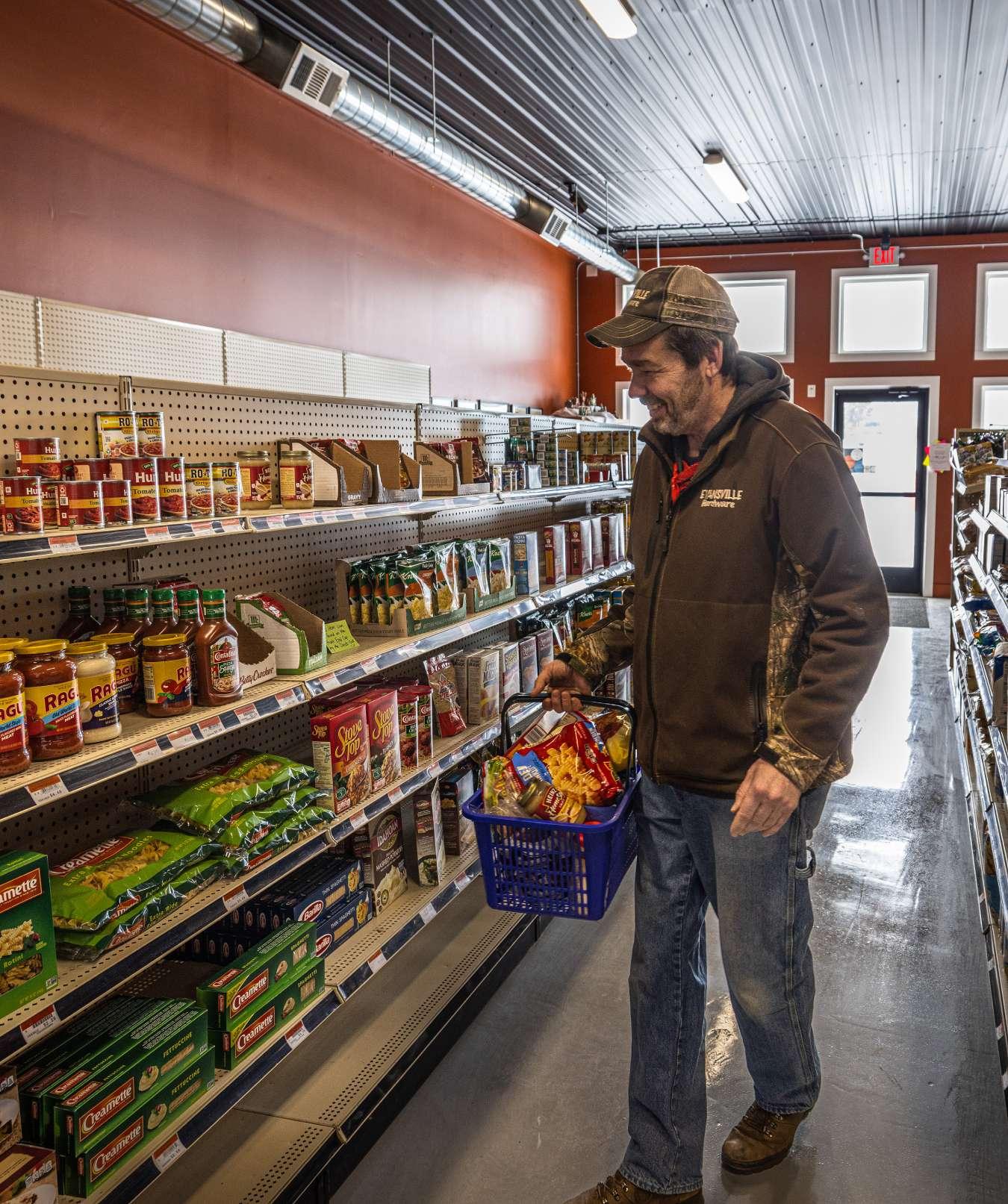
Rural grocery stores support Central Minnesota’s food needs. They also foster community.
By Elizabeth Foy Larsen | Photography by John Linn
In late 2017, Alex and Caileen Ostenson moved from the Twin Cities to Evansville—a town of 590 residents just 20 minutes from Alexandria—so they could raise their children closer to their extended family. The town’s grocery store, Nelson’s, had recently closed after an almost 70-year run.
Alex Ostenson grew up going to Nelson’s. He remembers buying Twizzlers for a penny, selling seedlings on the sidewalk during springtime, grabbing a gallon of milk after church. The store was a vital part of Evansville’s lifeblood. Now that it was shuttered, Ostenson couldn’t help but notice the impact its absence had on the town.
“It felt like the town was going into hibernation,” he said. “There was this odd sense of quiet.”
A diesel mechanic by trade, Ostenson wasn’t looking for a career change, but Nelson’s closing sparked an idea. As a mechanic, Ostenson often worked odd hours traveling to job sites. He didn’t want to have to drive 20 miles to the nearest supermarket to pick up a box of cereal or a stick of butter at 9 p.m. Could he and Caileen open a new grocery store that would bring life back to Evansville’s Main Street and also be a more convenient solution to the town’s grocery needs?
Missing Ingredients
As grocery stores get bigger, and as ownership grows more concentrated, it’s putting a squeeze on rural areas and creating food deserts in areas of lower population density. In fact, the share of sales from the nation’s top 20 grocery chains more than doubled from 1990 to 2020, according to a January 2023 report from the U.S. Department of Agriculture. That consolidation has been especially difficult for towns too small to support a Walmart, Cub or a Super One Foods. Minnesota has been especially hard hit by this trend: the state has fewer grocery stores per capita than most states and ranks 7th worst in the nation for access to healthy food, according to a 2019 report from the Minnesota Department of Health. Almost 900,000 people in low-income communities across the state—including more than 200,000 children—have insufficient grocery store access.
In towns of 2,500 residents or fewer, privately owned grocery stores often are the community’s anchor business, according to a study conducted by University of Minnesota Extension. In Minnesota, there are 250 rural grocery stores. Ninety-six percent of the 129 stores that participated in the survey agreed that as small businesses, they have a responsibility to their communities.
“For the consumer, having local access to the full range of grocery products—from dairy and meat to produce and toilet paper and diapers—has a high value when it comes to

SPRING 2023 35
food security,” said Kathryn Draeger, Ph.D., the statewide director of the U of M Regional Sustainable Development Partnerships and an author of the Extension survey.
Beyond providing access to what researchers refer to as a “full grocery basket,” Draeger says that rural grocers also are vital to building and maintaining community. They are, she says, examples of the “third place,” which is a social setting that is not a person’s home or workplace. “Grocery stores really help with social cohesion,” she said. “They’re often gathering points, touchstones in our communities.”
On a regional level, small-town grocers are a crucial answer to diversifying supply chain and distribution challenges because they work with providers that are different from the large chain stores. “If a farmer comes to one of these stores and says, ‘I have 500 pounds of potatoes and I’m selling them in 10-pound sacks for $2,’ a rural grocer can negotiate and buy those potatoes on the spot,” she said. “That doesn’t happen at Byerly’s or Cub. … That is a phenomenal asset. I don’t think we’ve thought enough about the critical role that independent rural grocers dotted throughout farm country could play in having a resilient food system for all of our population.” In the Extension survey, more than 25 percent of farmers said they would be willing to serve as a point of redistribution for locally grown food.
Finally, Draeger said that locally owned grocery stores can also be part of a strategy to combat climate change. “I think we have undervalued the climate benefits of having existing assets and maintaining those existing assets,” she said. “Every time we have
to start over and build from scratch and recreate, it takes human capacity, it takes more bricks, it takes more cement, it takes more energy, both human and real BTUs, to recreate a system that we already have. We need to start looking at rural groceries and the distribution services that supply them ... as assets that we need to maintain and preserve, because to recreate those things is a tremendous energy burden on our system.”
The Basics—and More
An hour northwest of Evansville, the town of Verndale— population 509—relies on Verndale Grocery & Treasure Too, which sells everything from burgers and brats to secondhand clothing and homewares. The store is run by the Wadena County Developmental Achievement Center (DAC), which purchased it in 2011, when the town’s previous grocery store was for sale. They added a thrift store to attract additional customers.
“When the store closed, there was no place where people could grab a gallon of milk,” said Nancy Spencer, DAC’s business manager. Today, the store is an integral part of the town, especially for elderly residents who don’t want to walk across the highway to go to a gas station convenience store.
“People like being able to get a loaf of bread or a bucket of ice cream and not have to travel eight miles to the Walmart or Super One in Wadena,” added Rose Bakke, DAC’s executive director. She said the store also is a gathering spot for residents, a place where a group of women can meet for a cup of coffee or browse the items in the thrift shop and feel connected to the life of the town. “The community would be extremely sad if we closed our doors.”

Keeping those doors open is no small commitment. In 2022, the Initiative Foundation awarded the DAC a $5,000 challenge grant to jumpstart fundraising to repair the store’s roof and make needed upgrades to other DAC buildings.
“I saw this challenge grant as potentially the most important $5,000 investment I was involved with in 2022,” said Zach Tabatt, nonprofit program development officer at the Initiative Foundation.

Initiative Foundation ifound.org 36 CONTINUED ON PAGE 38
FELLOWSHIP & FOOD: (Left) Verndale Grocery & Treasure Too is a place where people can gather and feel connected. (Right) An easy checkout system at Main Street Market in Evansville helps local residents grab what they need and go.
“Grocery stores really help with social cohesion. They’re often gathering points, touchstones in our communities.”
count
There is a lot to consider when choosing a financial institution -such as convenience, technology, and products. Perhaps you want a bank that gives back to the community it serves.


More than anything, your bank should have familiar, friendly people you know you can count on any time of the day.
At First Western Bank & Trust, we are all these things and more. You can bank on us.




SPRING 2023 37 BUILDING A BETTER TOMORROW. The Blattner Family of Companies includes Blattner Company, Blattner Energy and D.H. Blattner & Sons. BlattnerCompany.com Wind | Solar | Energy Storage Business Broker If you are Selling or Buying Confidential Business Analysis Confidential Network & Advertise the Sale Assist & Control Information Flow Support through Due Diligence to Closing Sale Structure Marv Soldner 40+ Years of Business Experience in Minnesota 320-267-9626 / msoldner@tworld.com www.tworldminnesota.com Sell your business Find a business Access to over 300 Franchises Commercial Property learn more! | REGIONFIVE.ORG R5DC's vision is to contribute, through planning and implementation of projects and programs, to a sustainable and prosperous regional economy, environment, and quality of life for all. R5DC is an equal opportunity provider, lender, and employer. banking team you can
on.
A community Baxter | Crosslake | Nisswa 37
Federal definitions of what is rural and what is a food desert might skim over the Verndales of the world as underserved communities. But to an elderly, low-income person who lives on the outskirts of town, it can be a tall task to get 8 miles down the road to buy groceries in Wadena. “Supporting the DAC’s grocery presence in Verndale felt like a key investment in the vitality of a small town and a way to serve the invisibly underserved who live in that area.”
What’s more, Tabatt said, the grant helps DAC clients maintain access to dignified work. “In the end, this small investment helps to keep food access local, it helps keep people employed in service to their community, and it supports the DAC’s organizational skills in fundraising by helping staff gain confidence in knowing that their community fully supports the work they do.”
Innovation Unlocks Access
In Evansville, the Ostensons opened Main Street Market in May 2021 with an innovative business model that prizes convenience while also acknowledging that round-the-clock staffing is financially unsustainable. The store is open in the traditional sense of the word—meaning there are cashiers and store workers—on Tuesdays, Thursdays and Saturdays from 9 a.m. to 5 p.m. For people who need more flexibility, Main Street Market sells memberships where people can have round-the-clock access to the store. Memberships are $75 annually. Members can access the store with either a phone app or special key fob and can purchase goods using the app or a self-service checkout. As of January 2023, there were 125 members, including residents of neighboring towns and cabin owners who want to pick up some staples on their way up north.
The store is just 900 square feet, but Ostenson, who is a member of the Initiative Foundation’s 2022-2023 Initiators Fellowship cohort, says they have figured out how to efficiently stock the shelves with the right product mix. “We don’t stock
Halal Meat: A Niche Market
The idea started as a conversation between Doug Virnig, Chad Schirmers and Dan Maurer—three childhood friends, who’d heard about the need for locally-raised halal goat meat for Central Minnesota’s growing Muslim population. Arabic for “lawful and permitted,” the term halal is used for products that are grown, processed and distributed according to specific guidelines that are in accordance with religious principles. In Central Minnesota, there are a handful of farmers who produce fresh halal goat meat, which is a staple in eastern African diets. Those operations are small scale. The rest of the supply comes from New Zealand and Australia. According to the Associated Press, that meat is often six months old by the time it arrives and is difficult to prepare.
three, four different brands of our products,” he said. “We like to say we’ve got the name brand that everybody recognizes, and then the value brand.”
The Main Street Market model has garnered a lot of media interest, including stories on National Public Radio and a German television news program—rural communities in that country are facing similar challenges and are interested in the Ostensons’ approach.
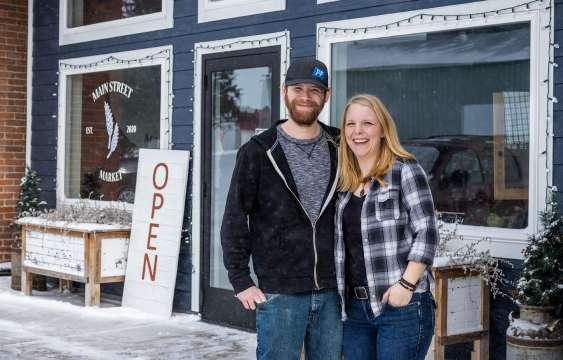
“Alex’s project has hit a note that elevates the issue of rural food access,” said Christine Metzo, program manager for the Initiators Fellowship, which provides financial and mentoring support for regional social entrepreneurs in the program. (See related story on page 10.) “I think lawmakers should take notice of this and say, ‘Yeah, we’ve got an issue here that has a solution. How do we support others doing the same thing?’”
Virnig, Schirmers and Maurer all grew up on farms in Pierz. The idea of raising goats appealed to them because it’s a segment of the farming market that isn’t yet well established. While all three partners have established careers, raising halal goats would, they decided, be a rewarding side project that would also answer a growing need in the supply chain. They named their farm True North Livestock and in 2022 bought 25 goats and took over an unused barn on Maurer’s family farm. With support from the Initiative Foundation and Serdar Mamedov at University of Minnesota Extension, they are learning about the halal process and currently are exploring if there are local opportunities to butcher, process and distribute their meat according to halal requirements.
“Our region has long had expertise in meat production,” said Don Hickman, vice president for community and workforce development at the Initiative Foundation. “Stearns County is the top dairy county in the entire state. The opportunity is there. We just need to figure out how all the pieces should align so that we can eventually build this strong and more resilient supply chain.”
If you are interested in connecting with True North Livestock they can be reached at truenorthlivestock@gmail.com.
38 Main Street Mainstays CONTINUED FROM PAGE 36
MAIN STREET ACCESS: Memberships provide Evansville-area residents with round-the-clock access to groceries.
Initiative Foundation ifound.org

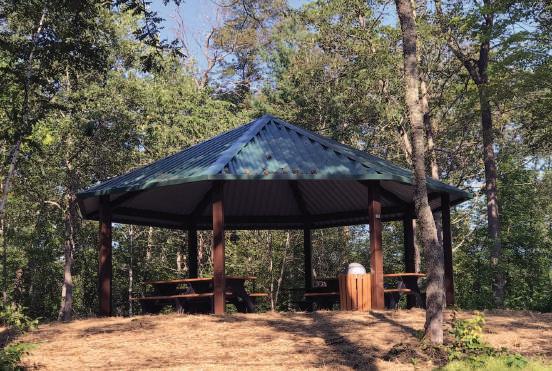























for Future Generations
to the Nisswa Lake Park Changes are happening at the Nisswa Lake Park and Recreation Area, including a new gazebo, walking trails, benches and the first docks. Thank you for your continued support & contributions! Please make your tax deductible donation payable to our 501 C 3 partner — the Brainerd Lakes Area Community Foundation, c/o Friends of Nisswa Lake Park. Mail to: Friends of Nisswa Lake Park PO Box 262, Nisswa, MN 56468 To learn more about this project or volunteer, call (218) 963-4444. walk bike picnic boat fish swim view ski canoe play The First Docks New Gazebo New Walking Trails to Lake Views
Leave a Legacy
Donate
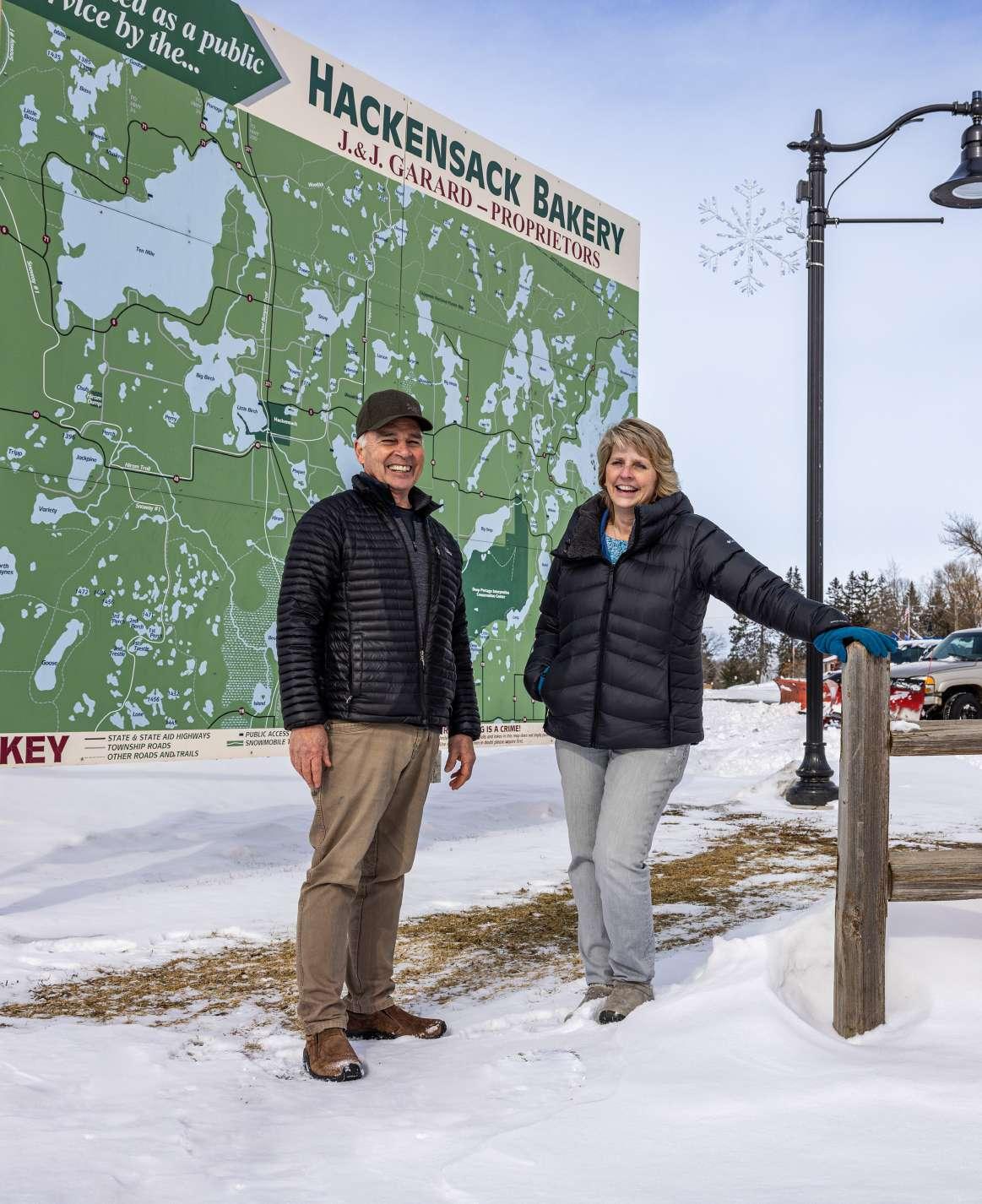
40 Initiative Foundation ifound.org
GAME CHANGERS: Gary Dietrich and Kristine Biessener are influencing workforce housing prospects by serving on the Hackensack Resilient Housing Team.
A PLACE TO CALL HOME
Communities at a crossroads: How can we create affordable housing to grow and prosper?
By Gene Rebeck | Photography by John Linn
Mann Lake Bee & Ag Supply in Hackensack has been abuzz with activity. “We are on a hiring spree,” said Shana Rowlette, Mann Lake’s chief financial officer. As of late January, the international distributor of beekeeping supplies was in the process of bringing on 53 people, raising the company’s total headcount to nearly 200. The business has an additional 46 openings in manufacturing, shipping, sales and management. As the pandemic eases, beekeepers are in growth mode, “which means they’re coming to us to buy a lot of product,” Rowlette said.
High demand typically translates to business success, but Mann Lake is finding it challenging to sustain its growth. The reason: In a not-so-densely populated area, it’s hard to find employees. Hackensack, located in Cass County just south of Leech Lake, is a small town (population 291) in the midst of a housing crisis. There are numerous seasonal residents with cabins and second homes thanks to an abundance of lakes in the area. That augments local spending and the local tax base, but it also feeds a larger challenge: a pronounced lack of starter homes, apartments, and

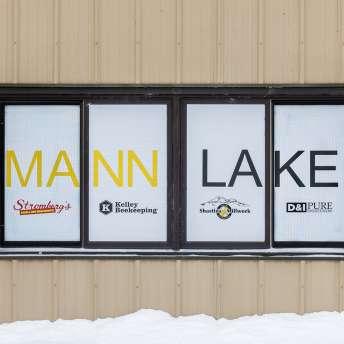
other housing that potential employees can afford. “We’re tapping the market an hour away,” Rowlette said. “But a lot of people don’t want to drive an hour to work.” The shortage of affordable housing also means it’s difficult to attract needed talent willing to relocate. There are signs that working-age people and their families want to move to areas like Hackensack. The Mankato-based Center for Rural Policy and Development noted in its State of Rural 2023 report, released in January, that rural Minnesota counties as a whole gained population in 2020 and 2021 following a decades-long trend of population loss. So what can places like Hackensack do to help people move there— and to help employers like Mann Lake hire the people they need?
A growing shortage
“I think affordable housing has always been a big challenge for the region,” said Deanna Hemmesch, executive director of the Central Minnesota Housing Partnership (CMHP), a St. Cloud-based nonprofit that develops affordable housing throughout a 16-county
SPRING 2023 41
41
area. “But recently, it feels to me that it’s gotten worse. We’re getting more and more requests for additional housing and [questions about] how we can help.”
Founded 30 years ago, CMHP now owns and manages 35 affordable rental properties comprising more than 900 units. The nonprofit also writes proposals to help regional communities obtain and administer grants from the state’s Small Cities Development Program. Municipalities can use these funds to renovate single-family homes and rental properties.
Association of Home Builders. Fewer projects are being financed “because the funds don’t go as far as they used to go,” Hemmesch noted. In addition, there aren’t enough subcontractors to handle projects that do receive funding. “Sometimes they don’t want to work on these projects because there are additional requirements, such as prevailing wages and additional paperwork,” she said.
The price of existing housing stock also has climbed. According to the Baxter-based Greater Lakes REALTORS® Association, the median house price in the association’s region is up nearly 24 percent during the past two years.
past couple of decades. “That inhibits the ability for people to move on and for younger people to move in,” Winchester said. In other words, it keeps a lot of houses off the market that could be occupied by working families.
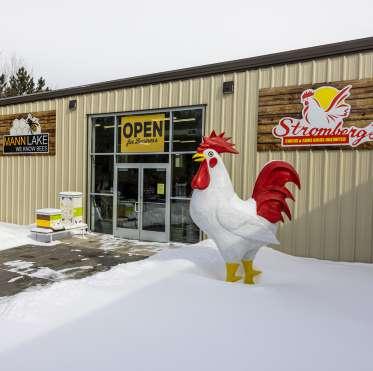
Adding to the challenge: Seniors who stay longer often don’t have the energy or resources to adequately maintain their homes. And that can result in houses that require a steep investment to modernize and bring up to code—a particular challenge for those who might be participating in firsttime homebuyer programs.
Still, for all that CMHP and other organizations have accomplished, the demand for affordable housing continues to rise. “Every county we cover has a large population of people who are costburdened—who are paying more than 30 percent of their income for rent or for any sort of housing,” Hemmesch said. It’s no longer just an urban issue. “Everyone is struggling to find places to house the people who work in their community.”
Why can’t the need be filled? One factor: Construction material prices have gone up 33 percent since the onset of the pandemic, according to the National
Newly constructed housing is not affordable for typical renters or homeowners:
69 percent of rental units constructed in Minnesota during the last ve years are not affordable to low-income renters. (incomes at or below 80% of the local area’s median income)
Without rental assistance, just 1 percent of new units are affordable to households with incomes at or below 30 percent of the area median income.
The median sale price of a newly constructed home in Minnesota is $430,000 while a household with the median homeowner income can only afford a $300,000 home.
The uptick has caught the attention of nonprofits that typically don’t focus on housing, said Zach Tabatt, nonprofit development program officer for the Initiative Foundation. “We started to see a spike in the number of nonprofits requesting information about housing and affordability,” he said. “We wanted to be part of the solution, and that’s what led us to co-convene a December housing summit in Mille Lacs to discuss possible solutions.”
According to Ben Winchester, a rural sociologist and a University of Minnesota Extension research fellow, one potential solution involves the aging homeowner base in rural communities. Since 1950, Winchester’s research found, rural populations have declined but the housing stock has remained steady. Why? Not so long ago, seniors typically moved out of their homes once their nests were empty. These days, they’re staying longer, whether due to economic forces or encouragement from age-in-place programs established over the
Central Minnesota households by income:
“For me, the way forward on workforce housing is to develop senior residences,” Winchester said. His belief: “We have no shortage of workforce housing in our rural communities. It’s just currently being occupied by the wrong people.” While not a popular topic, he said, it’s one that should be addressed in community housing conversations.
DEFINITIONS
Affordable Housing: The federal government considers housing to be affordable if a family spends no more than 30 percent of its income on housing costs, including utilities. Using this benchmark, a family earning the Central Minnesota median of $62,000 a year could afford to pay up to $18,600 a year (or $1,550 a month) on housing.
Workforce Housing: Housing for the occupations needed in every community, including teachers, nurses, police of cers, re ghters and other critical workers.
42 Initiative Foundation ifound.org
“Affordable housing has always been a big challenge for the region. But recently, it feels to me that it’s gotten worse.”
Deanna Hemmesch, executive director, Central Minnesota Housing Partnership
Central Minnesota median household income (2021 dollars) of $61,934 Source Minnesota Housing Finance Agency 2022-2023 Affordable Housing Plan and Minnesota Compass income and poverty measures for 2021
Less than $35,000 $35,000 - $49,999 $50,000 - $74,999 $75,000 - $99,999 $100,000 or more 11.5% 17.8% 15.0% 34.0% 21.7%
CONTINUED ON PAGE 44
Mann Lake Bee & AG Supply headquarters, Hackensack.

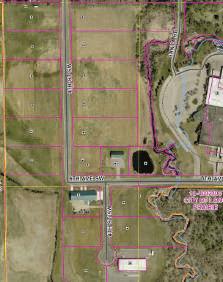


SPRING 2023 43 Long Prairie community is home to one of the most diverse populations in Minnesota outside of the major metropolitan areas. The city has a distinct, hard-working, well-educated labor force. • 20 lots ranging in size from 1 to 5 acres each • Conveniently located, the Southwest Industrial Park is a short distance from several US Trunk Highways (71, 27, 287), with Interstate 94 less than twenty miles away. • Encompasses just over 50 acres of land with utilities • Water, sewer, natural gas, electric, high-speed broadband, and fiber optic internet service. • Open to developers, whether it’s warehousing, machining, or manufacturing BUILD YOUR FUTURE IN CENTRAL MN We have Development Ready Commercial Lots in Long Prairie For more information contact: 615 Lake St. S, Long Prairie, MN 56347 • 320 732 2167 • tgray@cityoflongprairie.com longprairie.net/economic-development/available-sites Insured by NCUA. Membership with a $5.00 Share Savings account required. • Money-saving loan rates • Balance-boosting earnings & fewer fees • Service that puts you first Open to anyone who lives or works in Crow Wing, Cass, Aitkin, Morrison and Mille Lacs counties. Bringing savings, service & convenience to Brainerd Lakes. Join today! Baxter: 7422 Forthun Road Brainerd: 524 South Sixth Street wingsfinancial.com
W hat can be do ne?
At the December housing summit, one for-profit business proposed pre-built accessory dwelling units—self-contained apartments, cottages or small residential homes on the same property as a main single-family home, duplex or other residential unit—to maximize living space. Another popular idea was the creation of patio homes that can be built in clusters to maximize smaller lot sizes.
The state has several long-standing programs that attempt to drive solutions, but they generally are underfunded and hard to access in Greater Minnesota. “Communities like Crow Wing County have started local housing trust funds, and towns like Hackensack are considering the possibility,” Tabatt said. “These trust funds can help spur development through local funding streams and local decision-making. In general, many entities in the region are looking for new and creative ways to get more housing built.”
Some local governments are finding success. The cities of Mora and North Branch, for instance, have put together funding partnerships that have allowed both communities to accelerate the construction of affordable living units. Further north, Otter Tail County has established a program called The Big Build, the goal of which is to build, preserve or rehabilitate 5,000 housing units by 2025.
Taking action in Hackensack
Hackensack has been taking an active role in attracting new housing. About four years ago, the Initiative Foundation helped community members establish the Hackensack Lakes Area Community Foundation, which covers nine townships and includes the neighboring town of Backus. Supporters then created the Hackensack Game Changers—a series of teams focused on community betterment projects.
Kristine Biessener, an agent with the Hackensack area office of Edina Realty, is on the Resilient Housing Team. Its focus is to identify land where a developer could stand up a 30-unit apartment building.
“We also want to get some single-family homes and maybe some small duplex or fourplex housing,” Biessener said. “Now
For communities that want to take an active approach, Central Minnesota Housing Partnership’s Hemmesch has some tips:
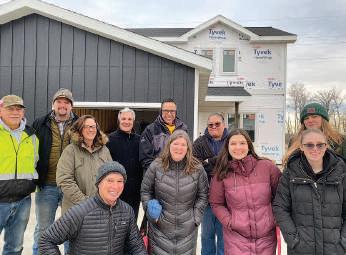

• Commission a housing study: “When communities are looking for a developer to build affordable housing, the one thing they may want to consider is putting together a housing study,” Hemmesch said. Can the community demonstrate a need? How many units are needed? What kind of units are needed? A study can provide builders with the information they need.
• Incentivize building: Communities can provide incentives to developers to keep housing units affordable. That can include donated land; waived fees for sewer and water access; reduced building permit fees; tax-increment financing, either upfront or pay-as-you-go. “All of those sources of funds can be helpful when you’re looking for an affordable-housing developer,” she said.
it’s a matter of finding those developers that are interested in investing in our area.” Biessener said her team also is interested in developing senior housing options. Of Minnesota’s 87 counties, Cass County has the state’s oldest population in terms of average age, according to the 2020 Census.
The city of Hackensack has commissioned a housing study, which likely will be done by June. Because the cost of new housing doesn’t pencil out for many developers, the next step is to secure state and federal funding. Hemmesch has expressed hope that this year’s bonding bill will add capacity to support rural housing.
Her sentiment is backed by Gary Dietrich, a longtime booster and member of the advisory team for the Hackensack Lakes Area Community Foundation. “Workforce housing is critical if we’re going to keep the headquarters of Mann Lake Bee & Ag here in Hackensack.”
44 Initiative Foundation ifound.org
A PLACE TO CALL HOME CONTINUED FROM PAGE 42
GRASSROOTS ACTION: Across the region, communities like Hackensack are crafting creative local solutions. Inset photo: Attendees at a December housing forum visit Red Willow Estates on Mille Lacs tribal lands.
Have you struggled with finding qualified candidates? Do your recruitment efforts feel like a waste of time? Now more than ever, good help is hard to find. Penmac Staffing is here to help.



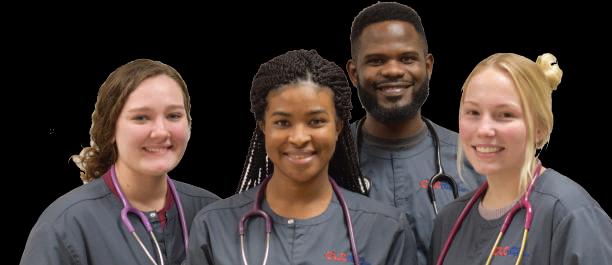
We offer custom, affordable staffing solutions to fit your needs. Our temporary, temp-to-hire, and long-term options can be adapted to any industry and any skill level. Call us today at (218)824-9675.






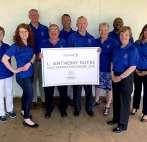



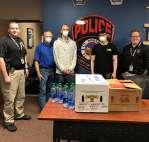

SPRING 2023 45 SCAN ME 70+ PROGRAMS Happiness is learning what you love! CLCMN.EDU 218.855.8000 EOEE/ADA Accessible The leading advocate of public safety in the Tricounty Area. Support | Advocate | Envision WE PUT THE HELP IN
offer a fee-for-service recruitment program that's available to all businesses in the Crow Wing County area A program membership
workforce
you’re
for a professional role in
MORE INFORMATION
Workforce
mike@growbrainerdlakes
(218)
Find the right people for the job using our Recruitment Program. Let’s make every word matter. Sonja Gidlow 320.290.7094 SandhillCommunications.com
We
comes with
assistance and valuable marketing benefits If
looking
the Brainerd Lakes Area, visit our job portal or send your resume directly to mike@growbrainerdlakes org FOR
Mike Bjerkness
Director
org
828-0096
MUSHROOMING OPPORTUNITIES


Forest Mushrooms has grown and expanded into additional markets. In addition to growing and selling organic shiitake and oyster mushrooms, they sell foraged wild mushrooms, package fresh exotic mushrooms from other growers (such as portabellas, enoki, maitake), and they offer dried mushrooms and powders. Their products reach stores and restaurants through wholesale suppliers.
Forest Mushrooms now sells online, and they work to meet demand for more medicinal or functional varieties such as Lion’s mane, chaga and turkey tails. Doyle was shocked by the 2020 onset of the pandemic and the effect it had on sales as people prepared more meals at home.
“Our dried mushrooms online went up 800 percent three months into the pandemic,” he said. The Splendid Table radio program recently did a full hour on mushrooms, and the New York


Times named mushrooms as the ingredient of the year in 2022.
“Mushrooms are really having their moment,” Doyle said.

Forest Mushrooms has grown to more than $5 million in annual sales. The business has 15 full-time employees—many of whom have decades of experience. Doyle makes sure they get a complete benefits package, including profit-sharing. As the business has grown, Forest Mushrooms has expanded the farm with multiple buildings for packing, cooling and transportation.
Doyle’s son, Colin, fills multiple roles—from information technology setup to other modernizations that add efficiencies while keeping costs down. Doyle said the business is well positioned to grow with new opportunities and adapt to market changes.

“Without the Initiative Foundation, this wouldn’t have happened,” Doyle said. “We are forever grateful.”


46 Initiative Foundation ifound.org Your local menswear resource offering custom clothing that FITS... your body, your personality, and your lifestyle. Reach out today to experience an entirely different way to shop! JESSICA RICHAU Personal Stylist curatedclosetco.com jessica@curatedclosetco.com 320.309.8071 @curatedclosetco Everything you need, your best t is guaranteed. Decisions Decisions Decisions made made made llocally! ocally! locally! Milaca | Isle | Gilman | Zimmerman fnbmilaca com fnbmilaca com fnbmilaca A History of Helping CONTINUED FROM PAGE 20
“ Mushrooms are really having their moment.”
To learn more about the Initiative Foundation’s business financing program, or to see if your project is a fit, scan the QR code or visit ifound.org/economy/business-financing

• Powerlodge - Miller Marine, Inc., St. Cloud










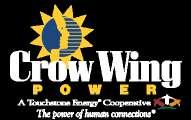



















































• DRM Veterinary Group, LLC, Rice





















• K&R Retail Meats, LLC, Mora
• Savanna Prairie, Inc., Kimball
• Dalal Logistics, LLC, St. Cloud
• MAC Delivery, Inc., St. Cloud
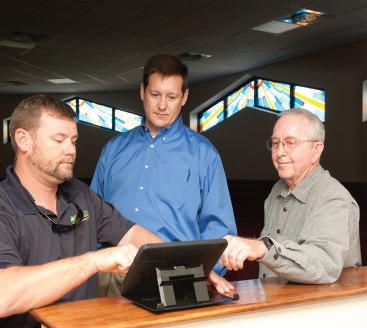
• Amina Express, LLC, St. Cloud
• The Sanctuary, LLC, Crosby
• Cloud Property, LLC, St. Cloud
• Bridge Healing Center, LLC, St. Cloud

• Anisa Hagi, LLC, St. Cloud
• HH Stables, LLC, Princeton
• GroShed, LLC, Emily
• Karels Hardware Company, Isle
• Klar's Cleaning & Restoration, LLC, Sandstone
• D.T.& M Property Management Corp., St. Cloud
• Jules' Bistro, St. Cloud
• Arroy, St. Cloud
• Higher Works Collaborative, St. Cloud
• Northern Oaks Events, LLC, Sauk Rapids
• No Limit Painting, St. Cloud
• Victory Plus Housing, LLC, St. Cloud

SPRING 2023 47 YOUR GO TO FOR EVERYTHING ENERGY www.cwpower.com UNITE IN THE FIGHT TO END HUNGER. NISSWA DONATE VOLUNTEER CHANGE A LIFE MN
Congratulations to recent business lending clients! To inquire about a loan for your business or startup, contact: DOUG ADAMS Business Finance Officer dadams@ifound.org (320) 631-2063 DANIEL BULLERT Senior Business Finance Manager dbullert@ifound.org (320) 631-2013
In the Region
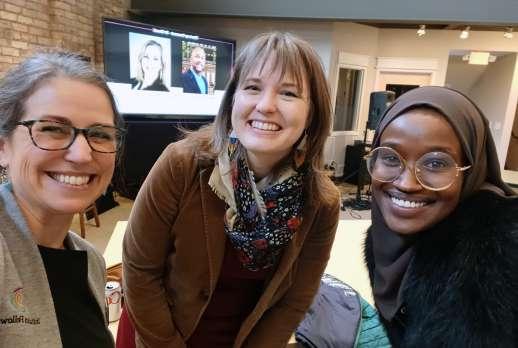

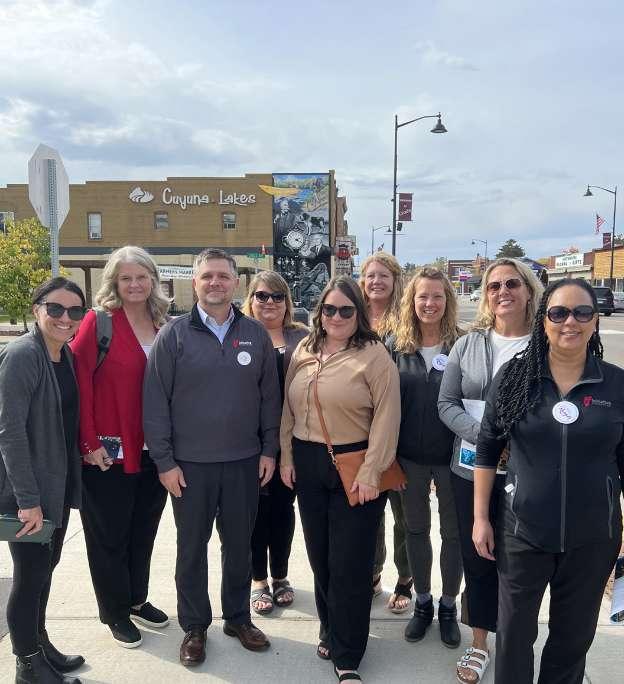

1 2 3
4 5

48 Initiative Foundation ifound.org
1) Initiative Foundation board, emeritus board and staff members gathered for the December 2022 Emeritus Luncheon. The annual gathering is chance to celebrate the year.
2) Vice President Kamala Harris toured the New Flyer bus-manufacturing plant to speak about investments in electric vehicles and a clean energy economy. President Matt Varilek (right) was among the attendees and was joined by Foundation board members Robbyn Wacker, president of St. Cloud State University, and Santo Cruz, senior vice president and chief legal officer at CentraCare Health.
3) Initiative Foundation staff and several board members visited Milaca, Onamia, Crosby and Emily during an October 2022 staff tour. The annual outing allows staff and board to experience the Foundation’s outreach and partnerships in Central Minnesota.
4) Christine Metzo, Initiators Fellowship program manager (left), visited with Initiators Fellows Nora Hertel and Fardowsa Iman at an event hosted by St. Cloud’s ILT Academy.
5) Central Minnesota entrepreneurs and community members gathered at St. Joseph’s Krewe Restaurant for a discussion on Greater Minnesota entrepreneurism led by MPR’s Kerri Miller in September 2022.















SPRING 2023 49 GREATERSTCLOUD Providing the RESOURCES, CONNECTIONS EXPERTISE and to Optimize Your Success. brainerdlakessa.org | 218-829-1120 Thank you B R A I N E R D L A K E S D A Y O F C A R I N G Every donation put in The Salvation Army's kettles on December 15, 2022, was matched up to $25,000 by Cub Foods, Mills Automotive Group, and Ron & Darlene Schaefer to help our neighbors in need and make a great impact in Brainerd. Thank you, Brainerd Lakes!
Better Greens
Montrose, Minn.
By Maria Surma Manka
Photos submitted by Funwi Vitalis Tita
If you asked most Minnesotans whether Central African crops could successfully grow in our state, many would be skeptical. But with the right mix of science, creativity and care, Montrose-based Better Greens, LLC, is meeting a culinary demand in our diverse region.

Funwi Vitalis Tita is originally from Cameroon and moved to the United States in 2001 to attend the University of Wisconsin-Platteville. Eventually settling in Minnesota with his wife Jennet—also from Cameroon— he was working for a nonprofit organization that he helped found when he and Jennet began growing African greens and vegetables in their backyard garden. They wanted to create the foods and dishes of Cameroon to feed their life in Minnesota.
“I grew up on a farm, so I was familiar with the business and I have a great love of nature,” said Tita. Soon, he and Jennet were sharing yields with family and friends. Then strangers offered to pay them for it. “As the interest grew, we realized we could capitalize on it,” said Tita, who acquired more land and equipment and established Better Greens, LLC, in 2016.
The African community in Minnesota and throughout the country yearns to eat the greens and vegetables they grew up with, but multiple factors can make that challenging. “Oftentimes, they spoil before they arrive, or there’s an issue with U.S. Customs, or they don’t have the nutritional value they should have,” Tita explained.
Better Greens, LLC, became a business when necessity met passion. Today the company supplies fresh and frozen African greens and vegetables to support the dietary needs and wants of African communities in Minnesota and around the country.
Feeding a Community
1. Better Greens is truly a family business. The Titas’ five children— ages 6 to 18—help throughout the year. Temporary workers are hired for weeding and harvesting, and Tita hopes to hire their first part-time role this year.
2. The largest customer base is African immigrants living in the United States, though Tita says he wants to make the produce accessible to everyone.

3. Better Greens’ produce is sold mainly to individuals. “We sell a lot of fresh greens and vegetables in the summer,” said Tita. “For customers in other states, we can process, package and ship frozen options.”
4. Although some grocers have shown interest in selling Better Greens produce, limited land keeps the business from scaling. Last season’s eight acres of leased farmland are now unavailable, and Tita has secured just four acres for the upcoming season. “To meet demand, we need 15 to 20 acres,” he said. “The market is ready to absorb whatever we can produce.”
50 Initiative Foundation ifound.org home made
An in-the-field selfie: Funwi and Jennet Tita.
Freshly harvested African eggplant.
5. Experimenting with a variety of tropical vegetables has had its surprises. Bitter leaves grow perennially in Cameroon’s hot, humid weather and are hardy enough to last until October in Minnesota. Another crop that does surprisingly well here in Minnesota in the fall? Mangoes. They flourish in September when temperatures cool down.
6. One stubborn plant is the okongobong (a form of pumpkin leaf). It grows easily in Africa, but it’s proving to be a challenge in Minnesota. “I’ve taken it to greenhouses, but they can’t grow it even in perfect conditions.” Tita hopes to contact the University of Minnesota for assistance with the popular produce.
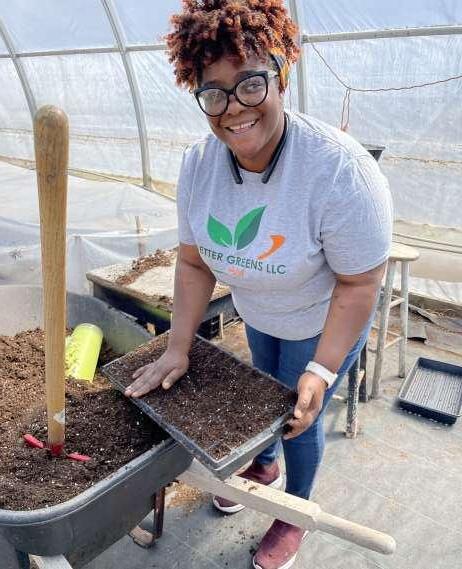
7. Coming from a large and diverse continent, African produce may have different names depending on the region. The huckleberry is known as jamajama in Cameroon and managu in Nigeria. The Titas are researching plant names to include variations on the website and on social media.
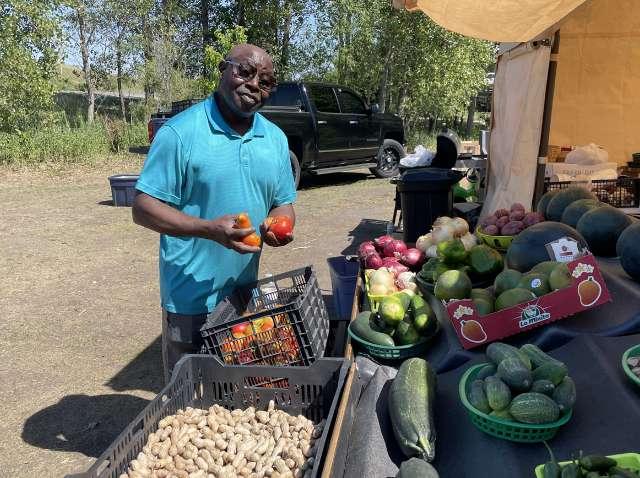
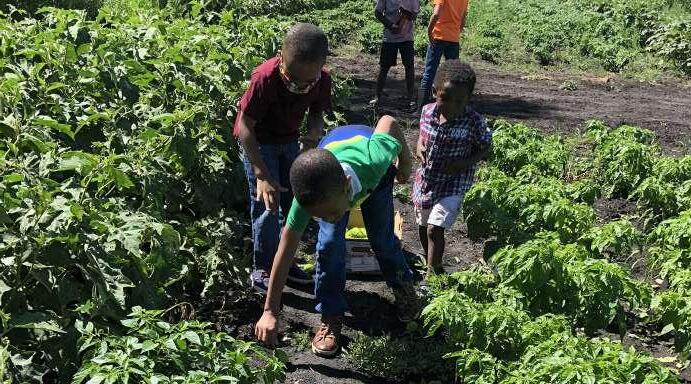
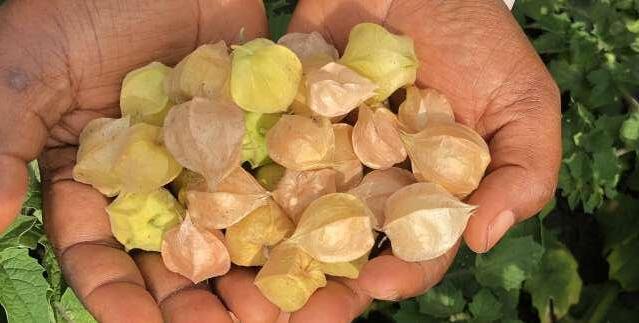
8. Better Greens received a 2022 microenterprise grant from the Initiative Foundation. Tita says the Initiative Foundation grant “was an absolute necessity” because last year’s drought was so detrimental. Even more important, he says, is what the grant signifies: “For people like me ... the likes of the Initiative Foundation grant becomes a saving grace.”
9. The Titas dream of adding permanent infrastructure that would enable Better Greens to scale and negotiate confidently with markets and grocers. “I’m looking at grants and funding, and my wife and I have discussed opening up for investment,” Tita said. “Our goal is to see African vegetables accessible on traditional grocery store shelves in all parts of the country.”
SPRING 2023 51
Area children visit the Better Greens farm to learn about crop production.
A customer purchases vegetables at the farm’s stand on U.S. Highway 12 near Montrose.
A summer harvest of ground cherries.
Better Greens co-founder Jennet Tita nurses seedlings in the greenhouse prior to planting.
where’s IQ?
THINK YOU KNOW?
Send your best guess to IQ@ifound.org by May 26, 2023.
Three winners will be chosen, at random, to receive a $25 credit to apply toward their favorite Initiative Foundationhosted Partner Fund.
HINT: This mushroom-shaped building was formerly a gas station. In what community is it located?
Congratulations to everyone who correctly recognized Minnesota’s first granite quarry in St. Cloud in the fall 2022 edition. Kurt Franke, Candice Hanson and Michael Lauer were the lucky winners of the “Where’s IQ” contest.
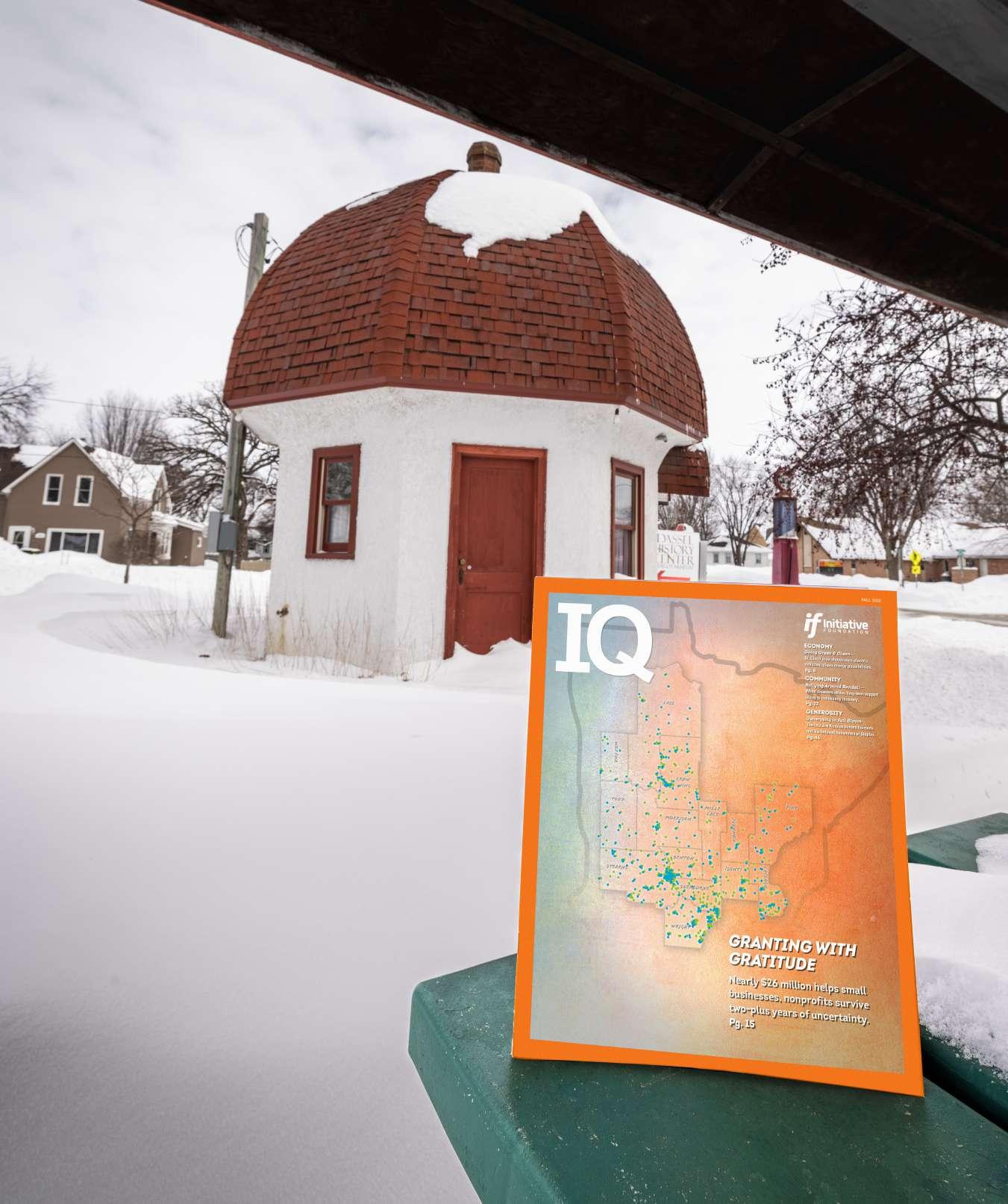
Driving Your Business Forward
Deluxe partners with businesses big and small to drive results. It’s what we’ve done for over a century and it’s what we’ll do for you today as we continue to innovate ways to help businesses pay with ease, get paid faster and grow profitably. Our trusted tools and resources will put you on the fast track to help you succeed. Learn more at deluxe.com .
Preferred Partner of Porsche North America and a Sponsor of the Carrera Cup series.

© 2023 Deluxe Corporation


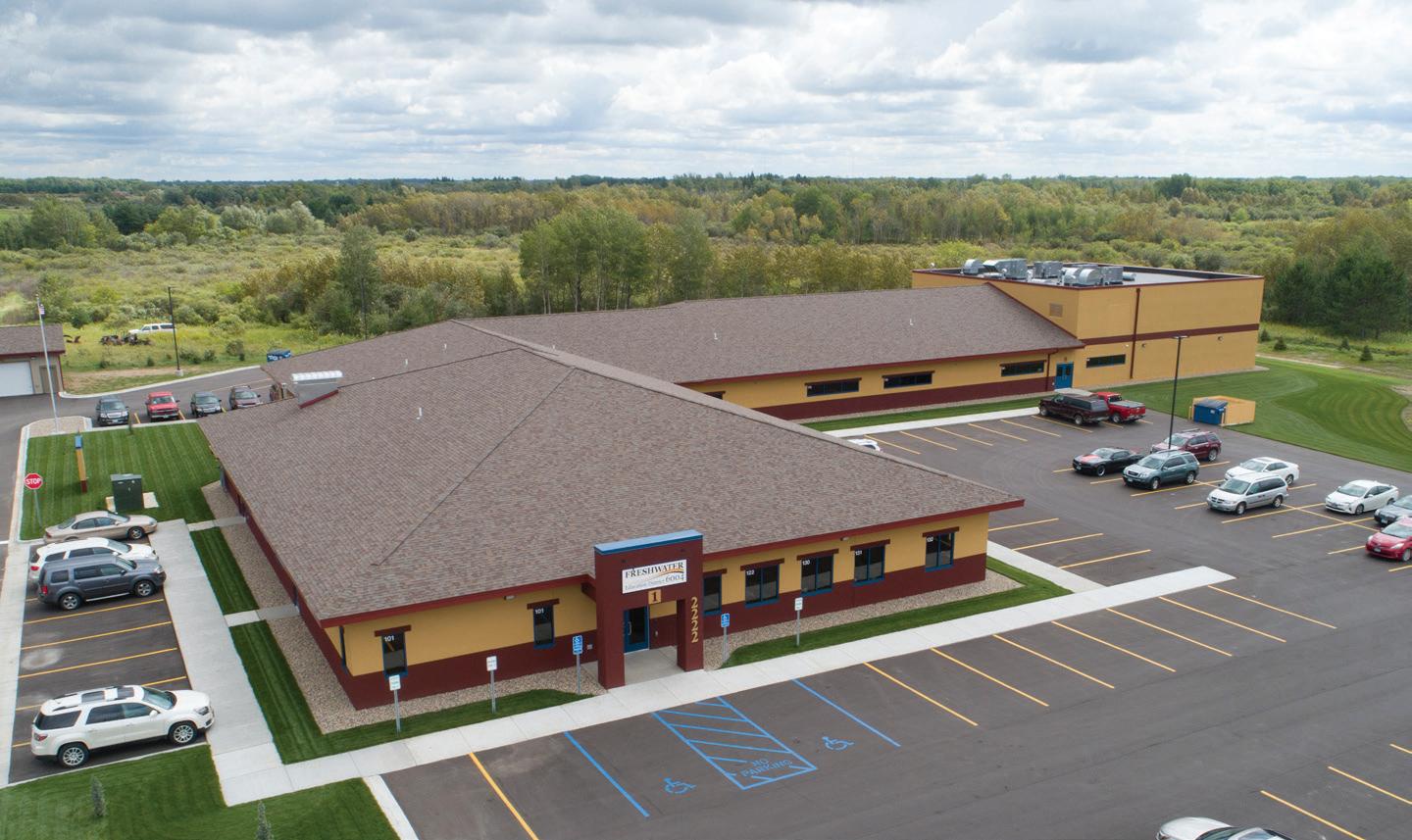
Nor-Son is an awarded contractor for Sourcewell and AUTHORIZED NUCOR BUILDER. Nor-SonConstruction.com NOR-SON CONSTRUCTION BUILDING EXCELLENCE IN EVERYTHING WE DO.

































 FRIENDS & FELLOWS: The 2022-2023 cohort includes (back row, left to right) Kris Shelstad, Madison; Daniel Barrientez, Bemidji; Nora Hertel, St. Michael; Khalif Ahmed Bashir, Willmar; (front row) Brenna Rollie, Fosston; Noreen Thomas, Moorhead; Alex Ostenson, Evansville; and Fardowsa Iman, St. Cloud. (Photo by Paul Middlestaedt)
FRIENDS & FELLOWS: The 2022-2023 cohort includes (back row, left to right) Kris Shelstad, Madison; Daniel Barrientez, Bemidji; Nora Hertel, St. Michael; Khalif Ahmed Bashir, Willmar; (front row) Brenna Rollie, Fosston; Noreen Thomas, Moorhead; Alex Ostenson, Evansville; and Fardowsa Iman, St. Cloud. (Photo by Paul Middlestaedt)





































 By Laura Billings Coleman |
Photography by John Linn
By Laura Billings Coleman |
Photography by John Linn




























































































































